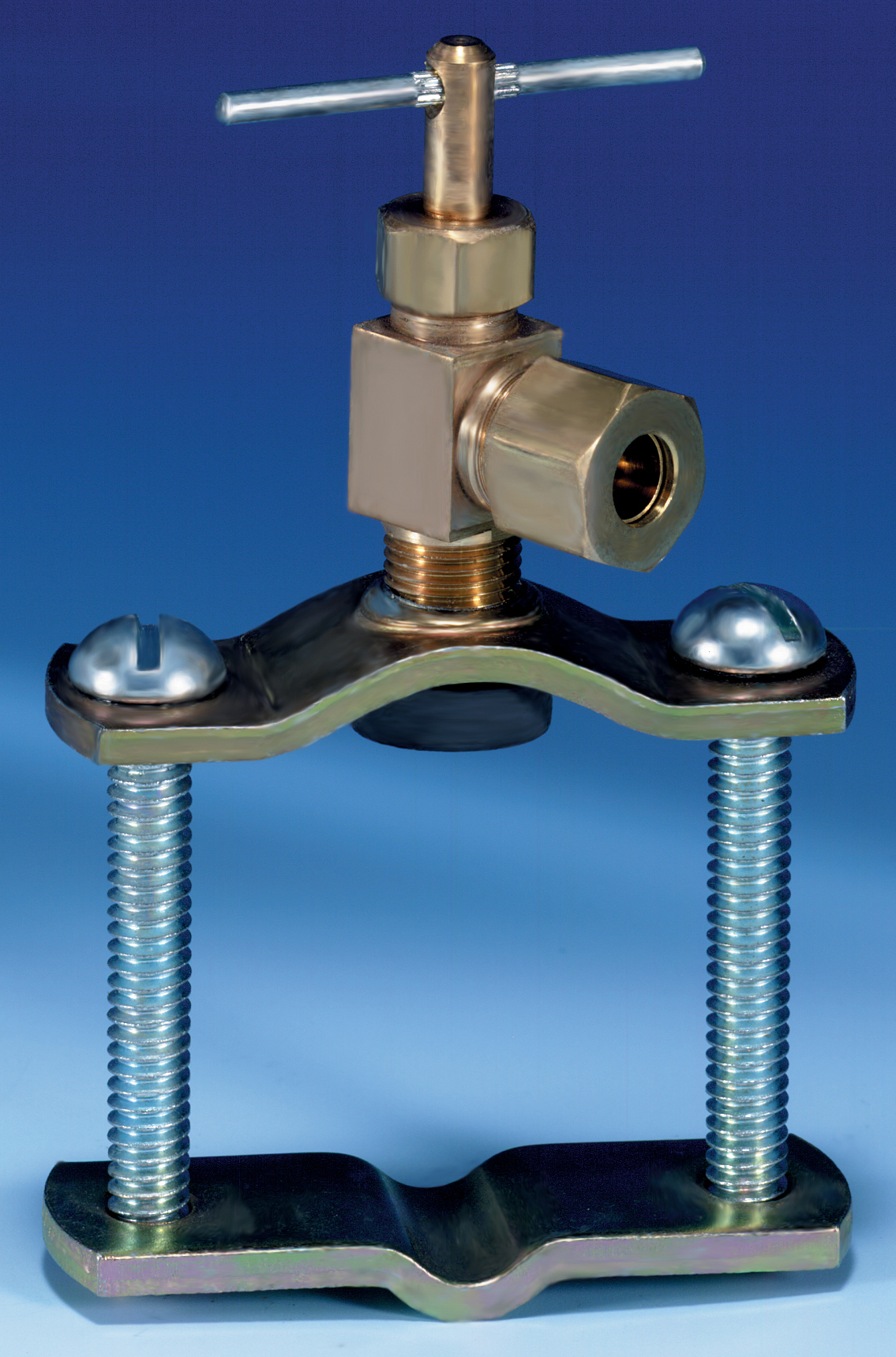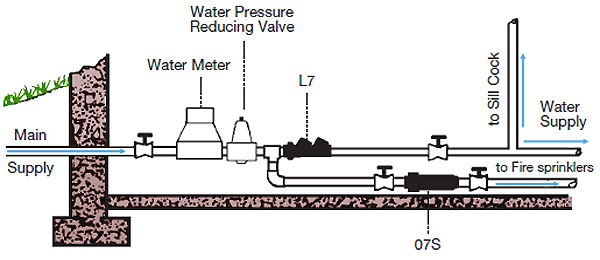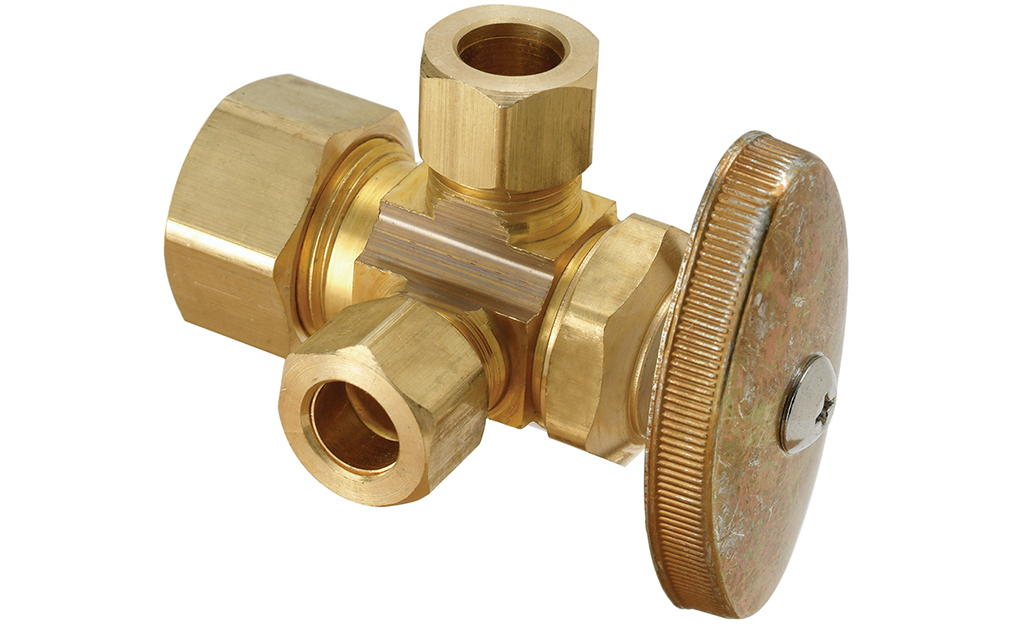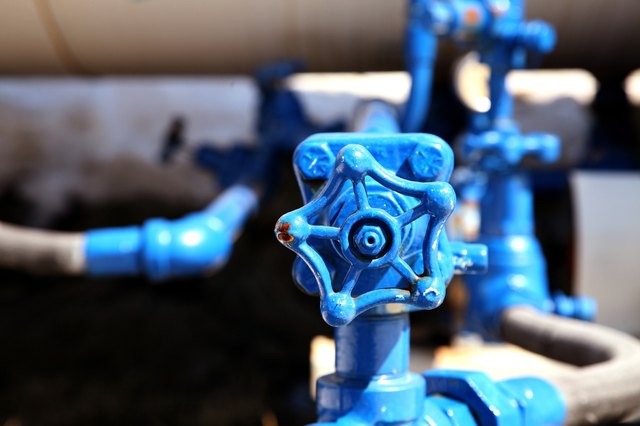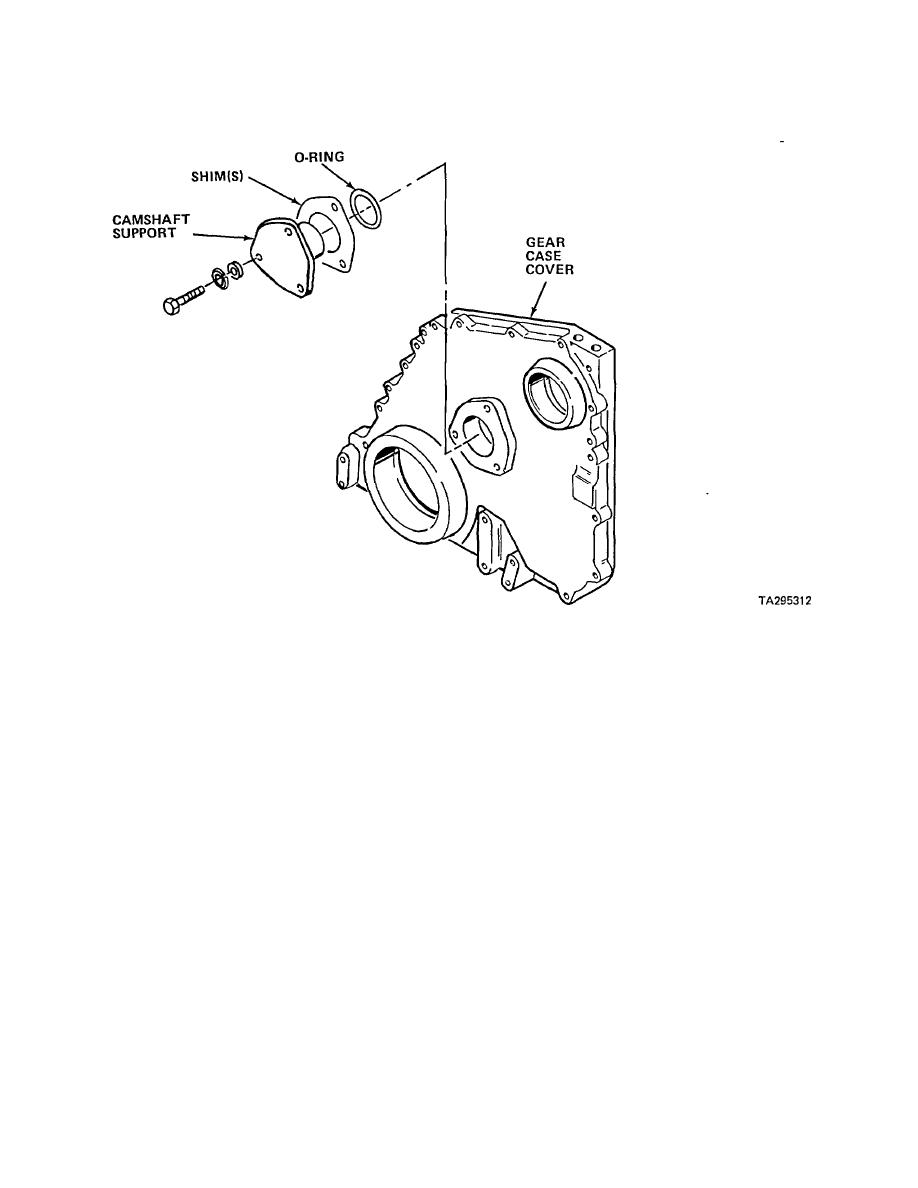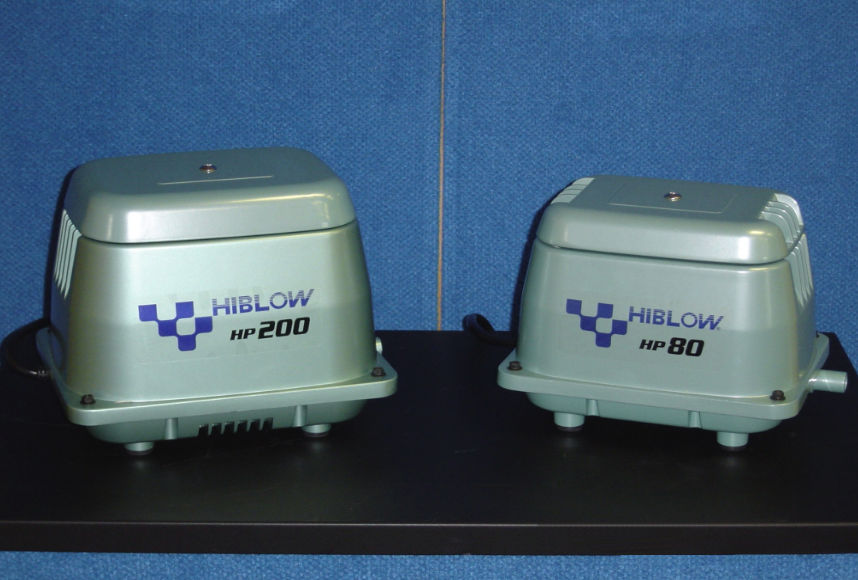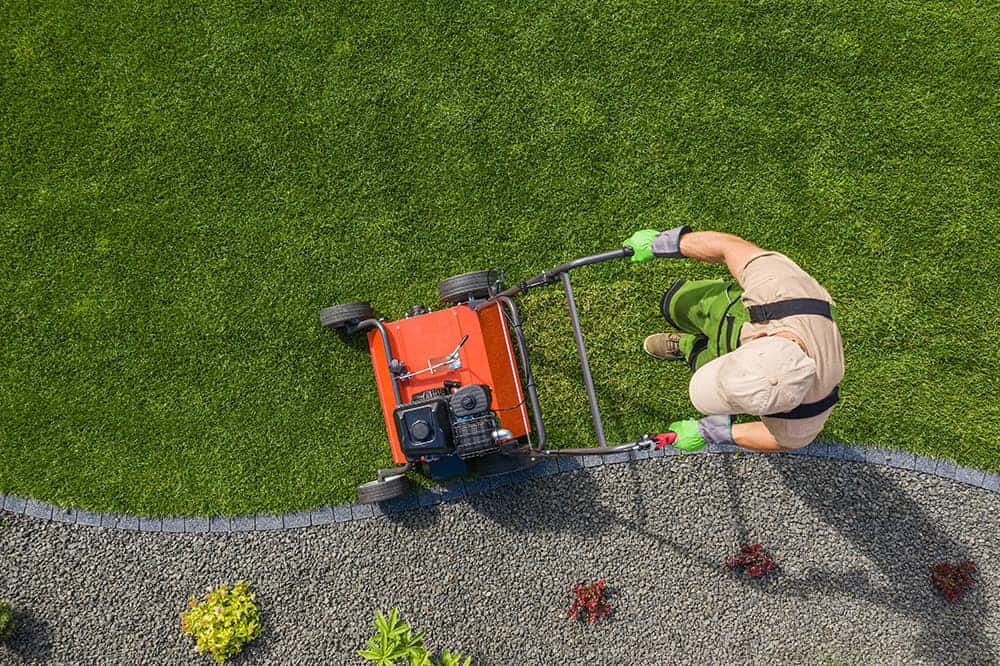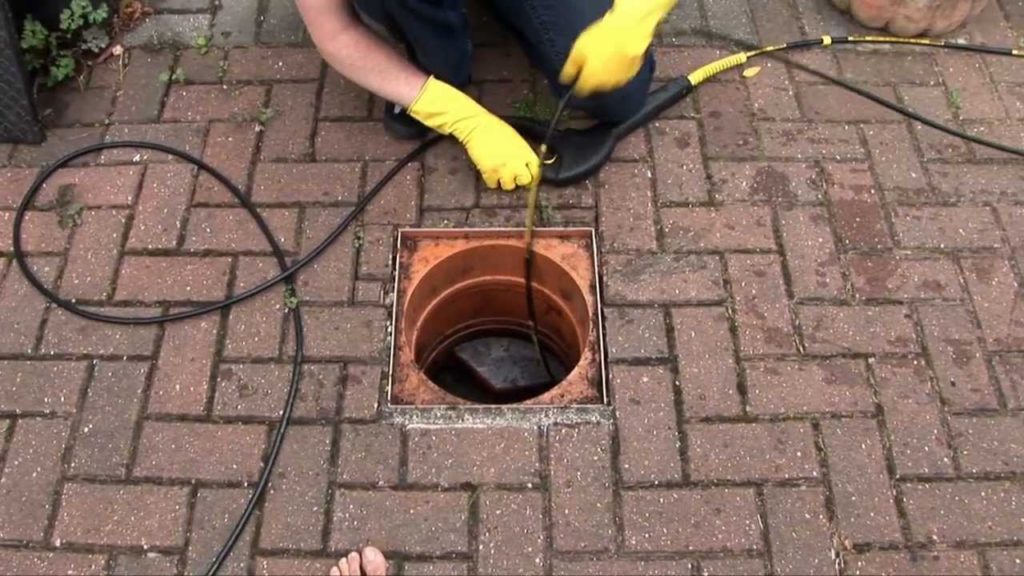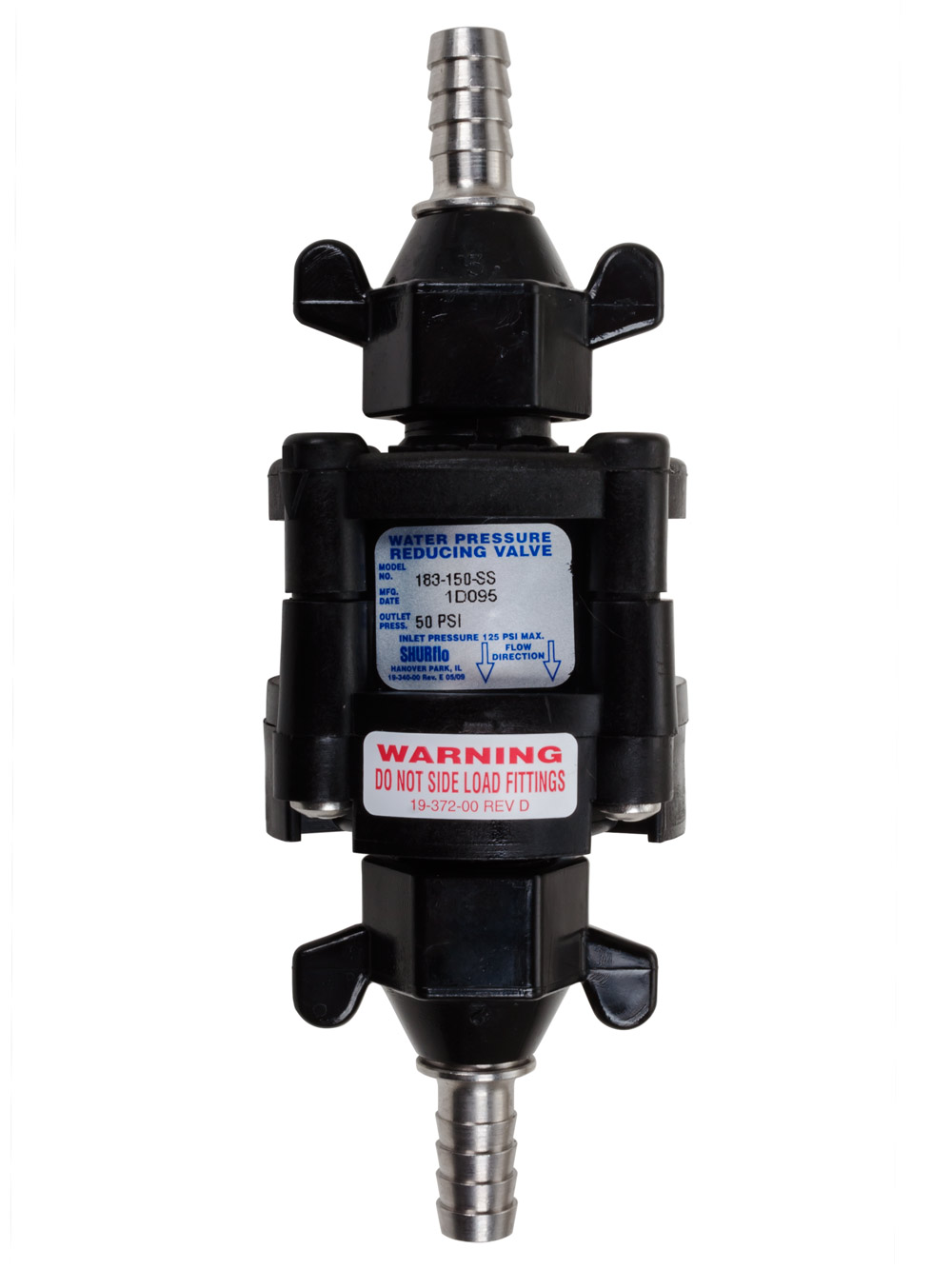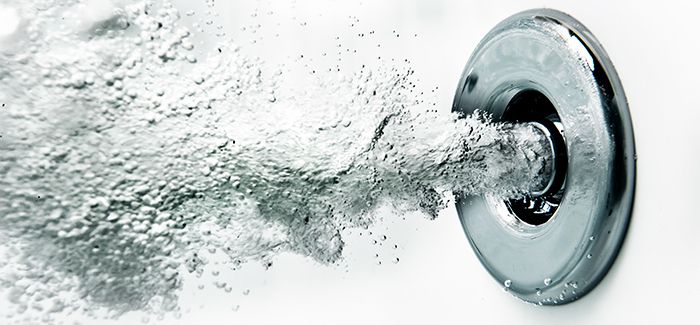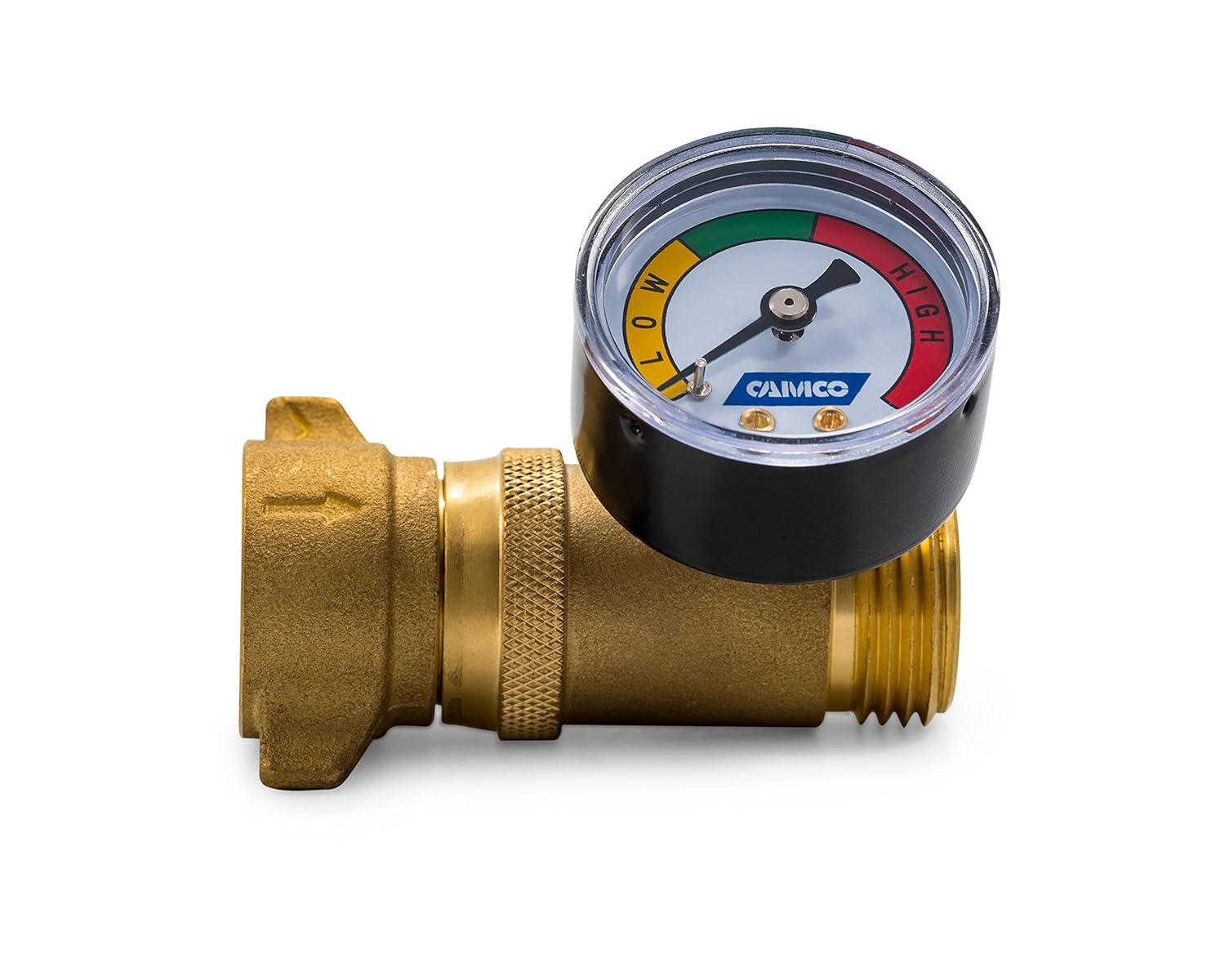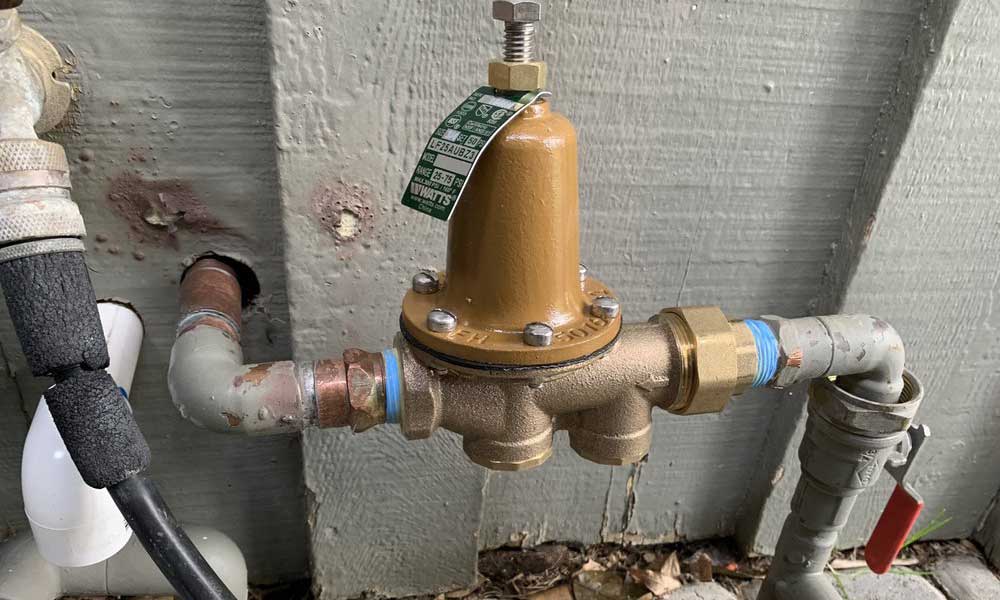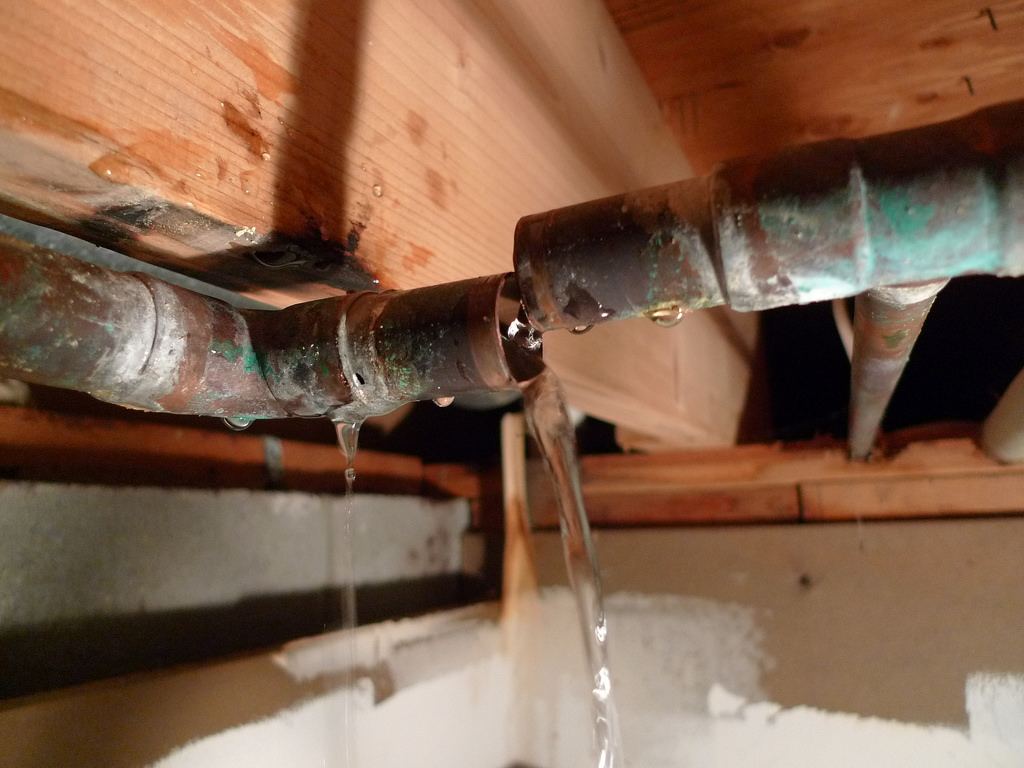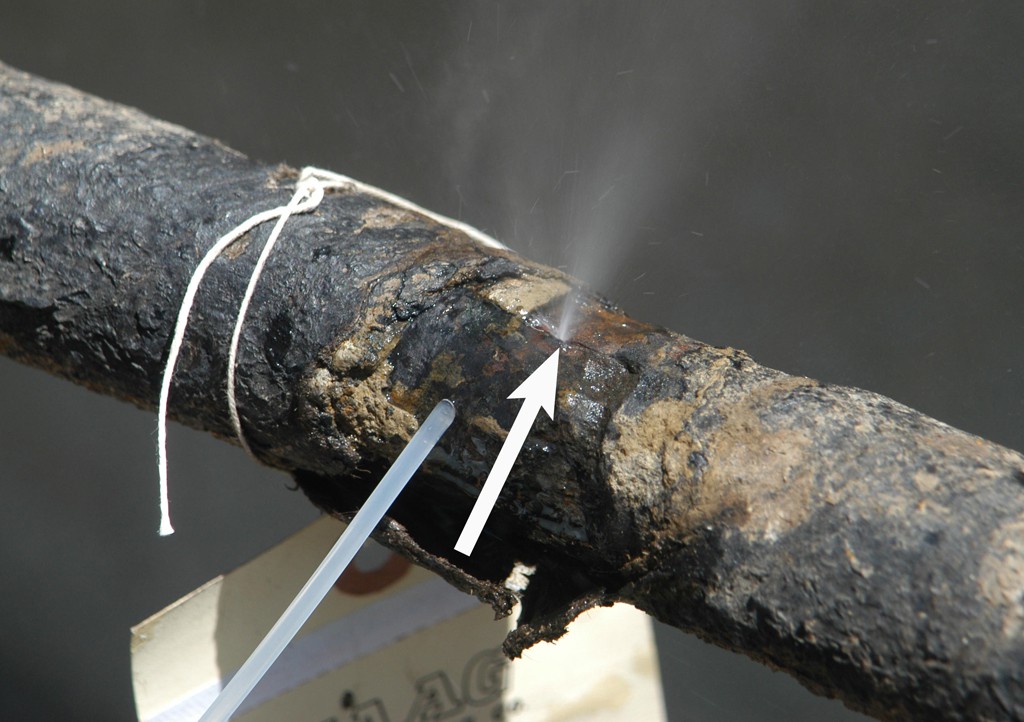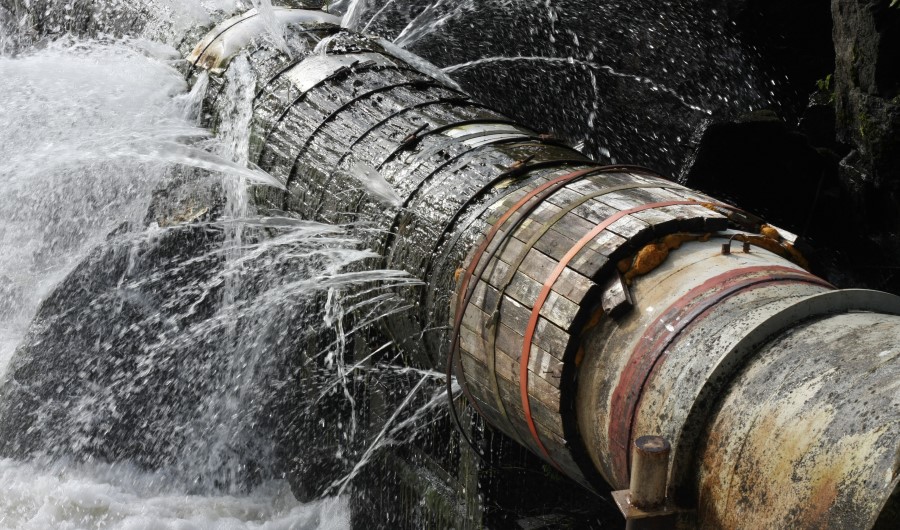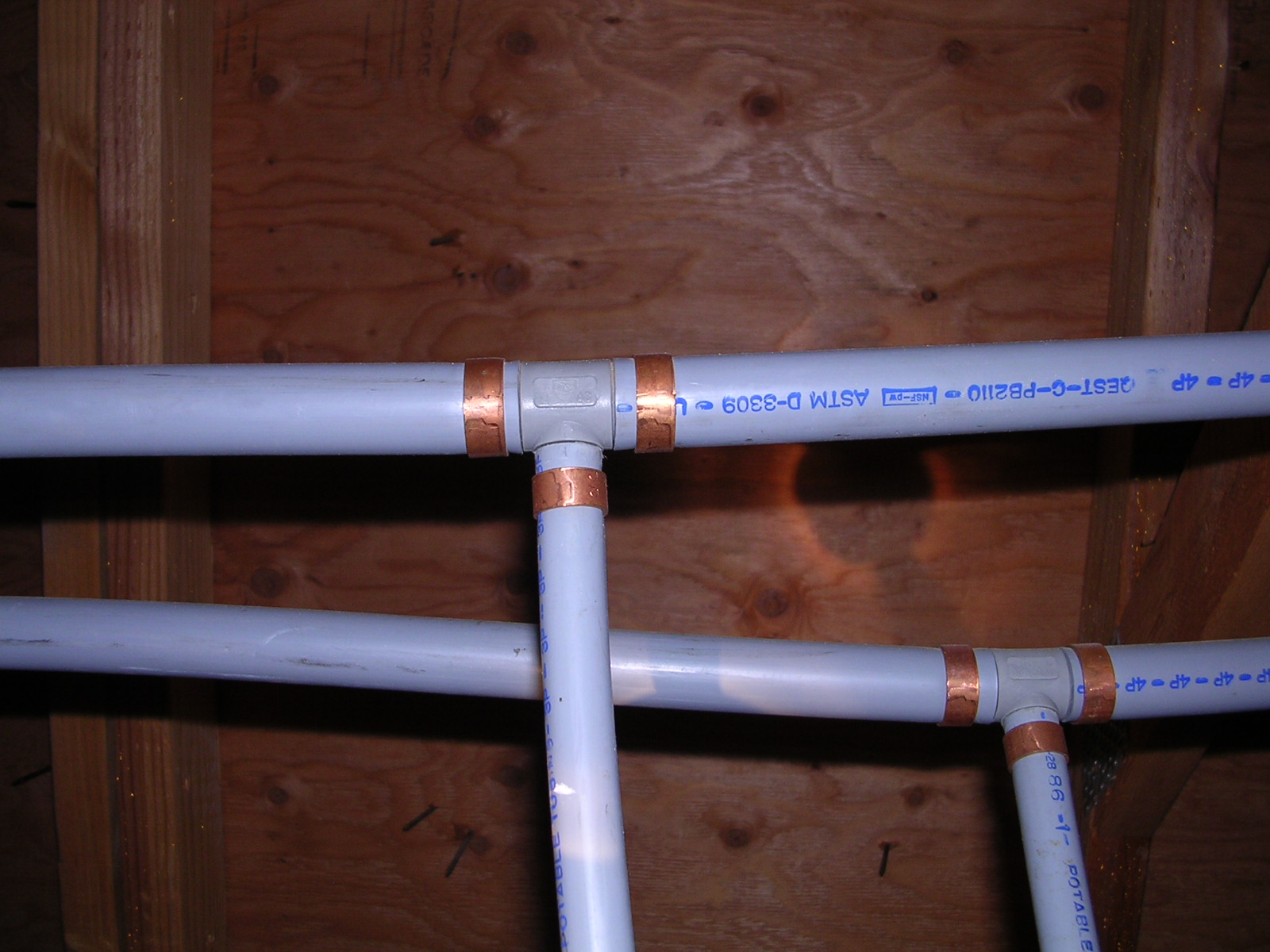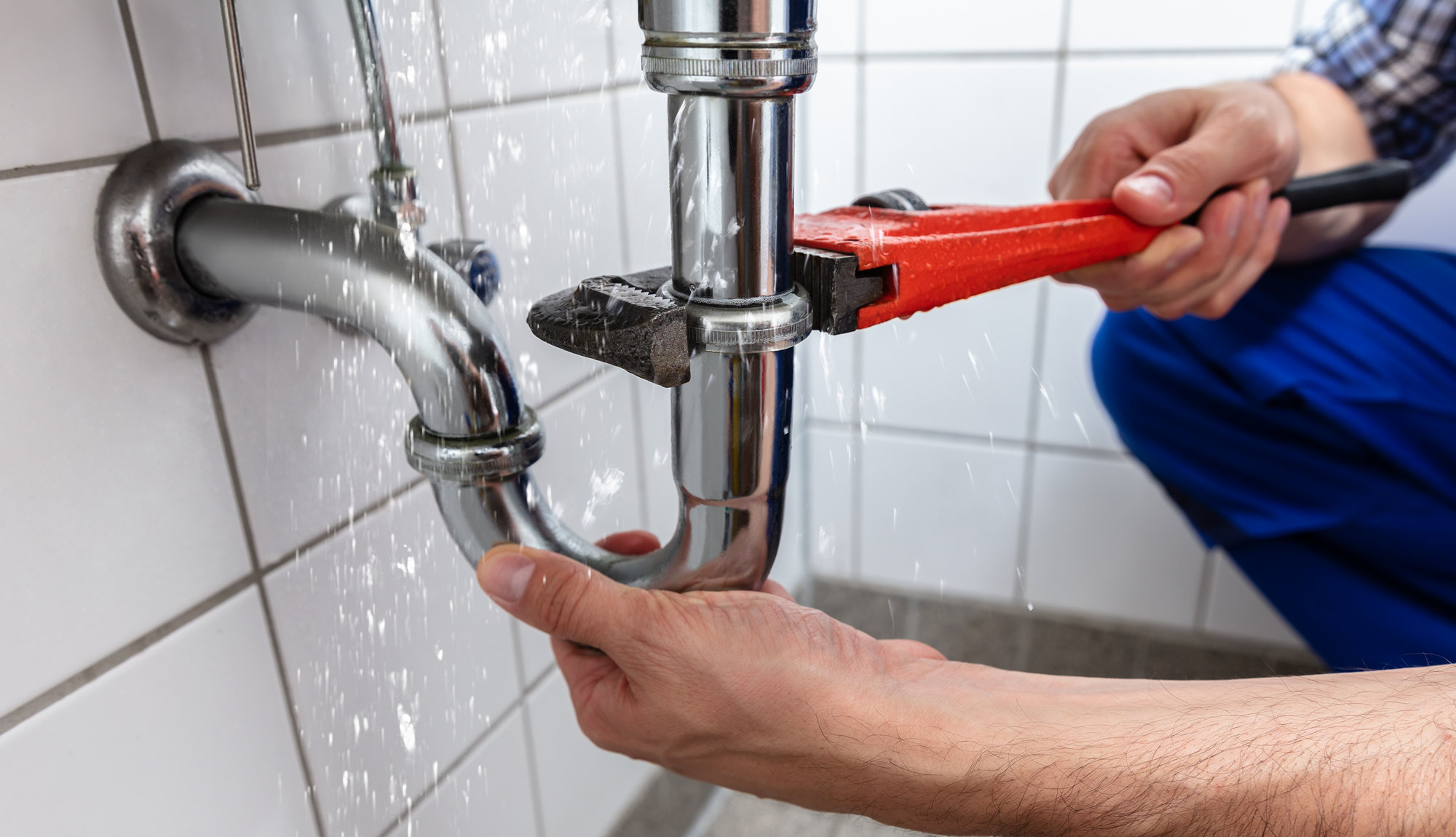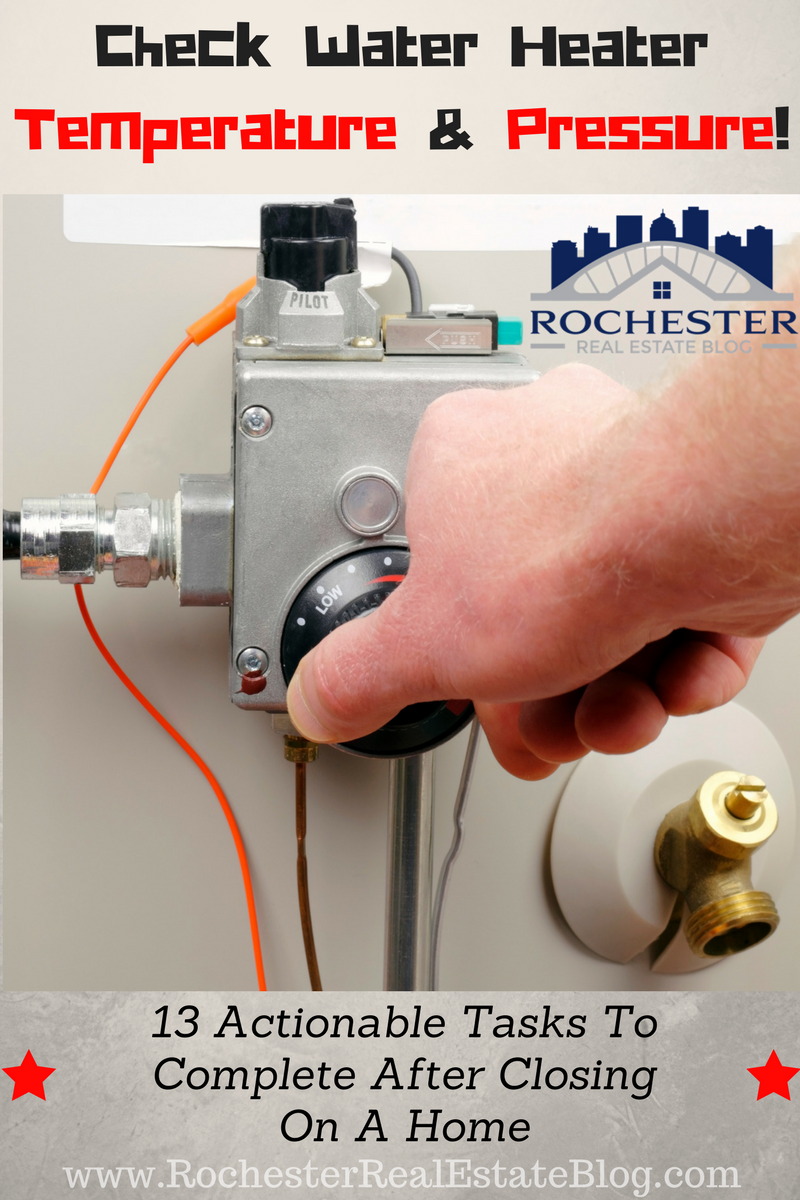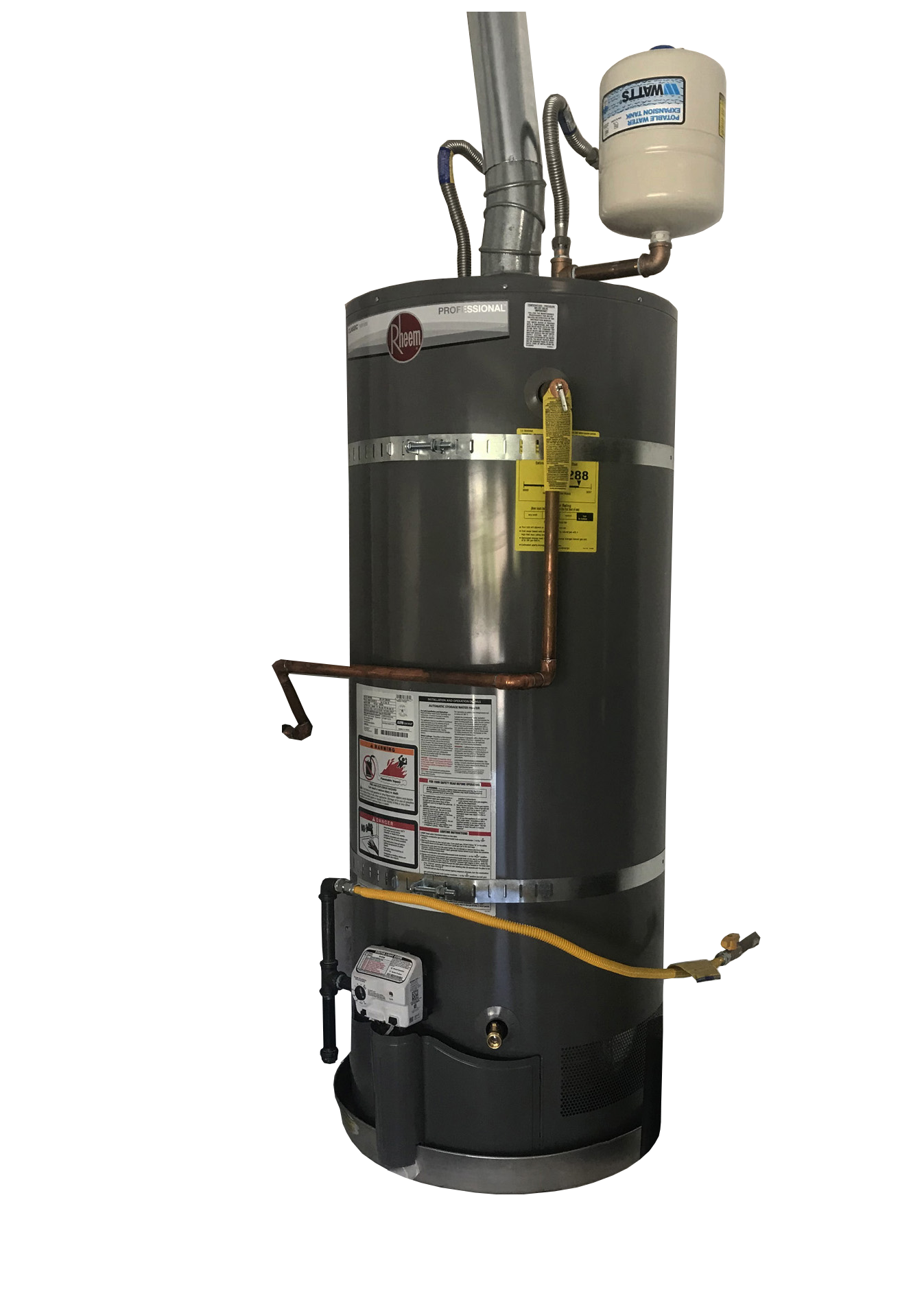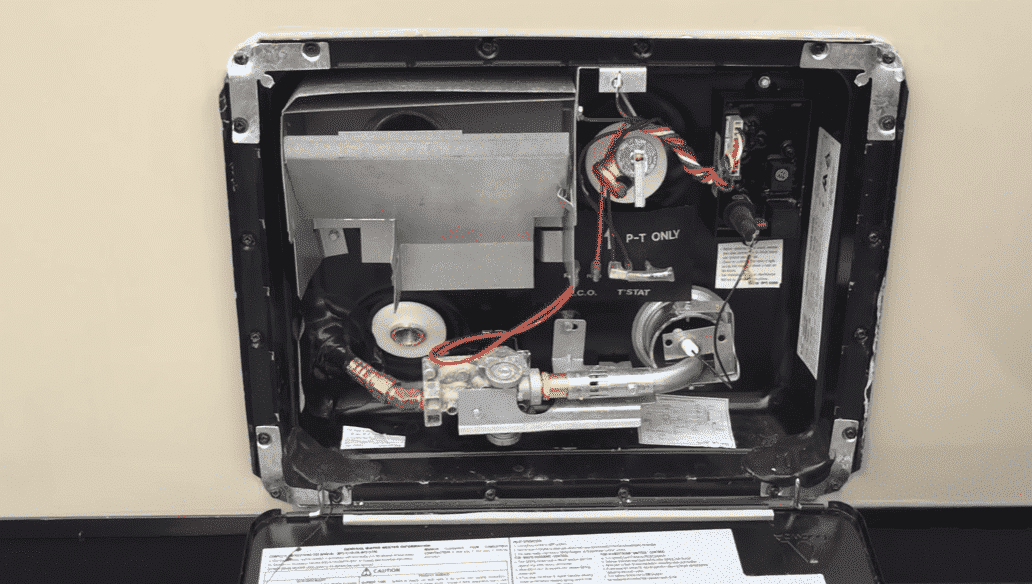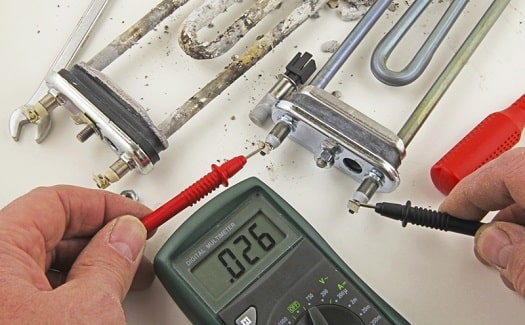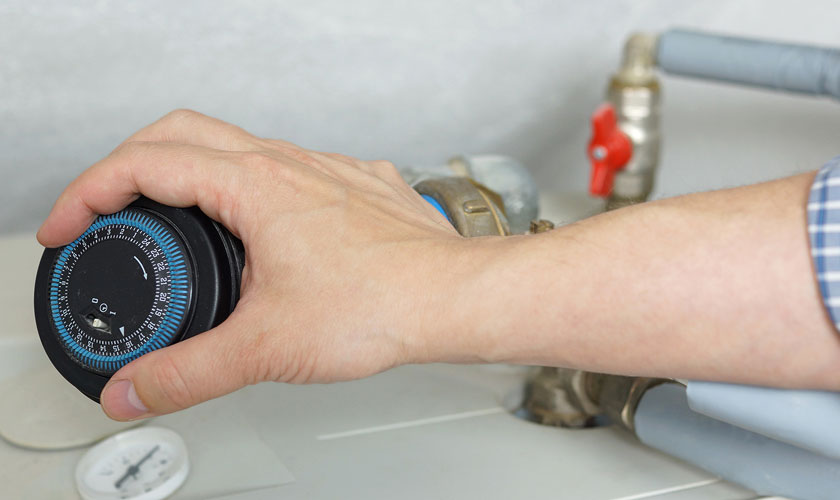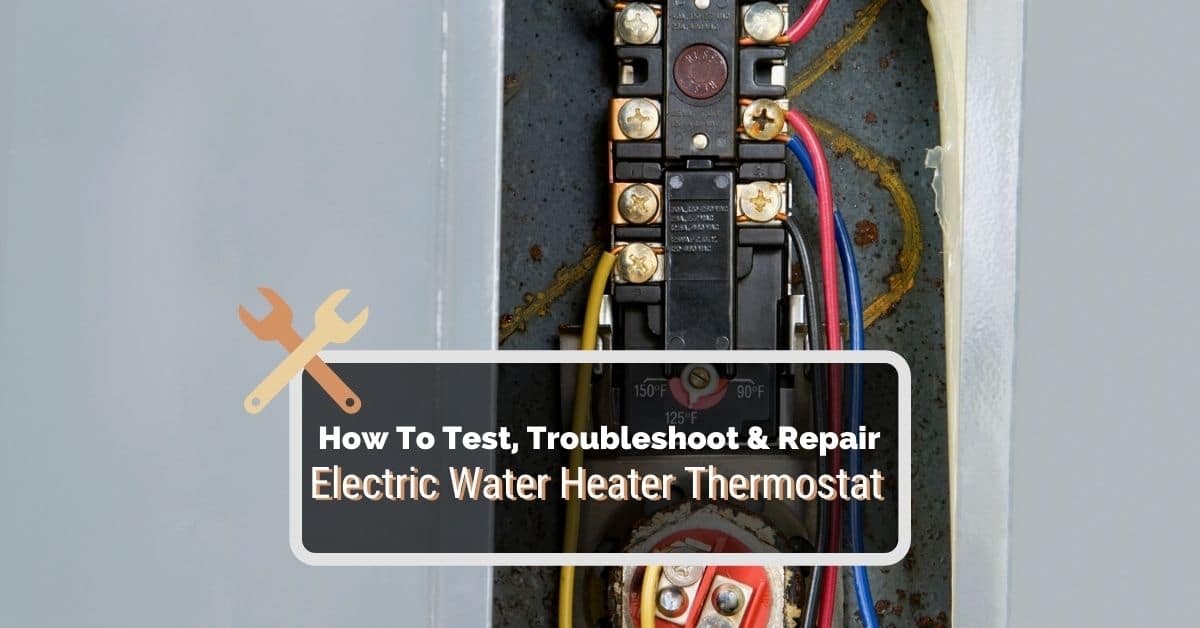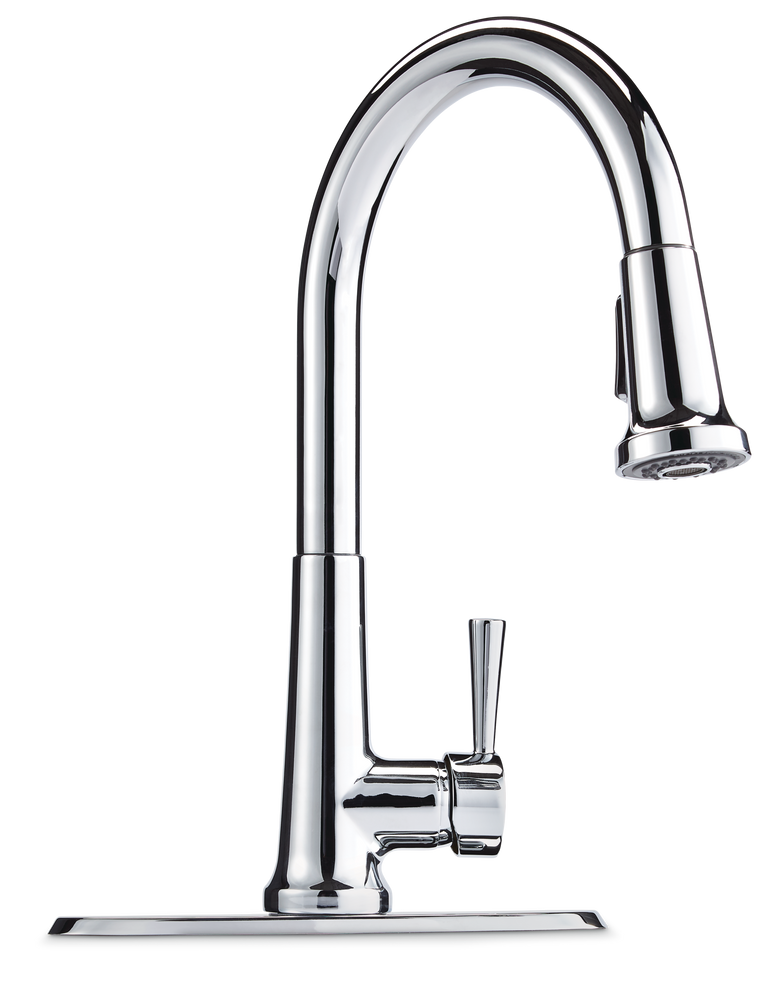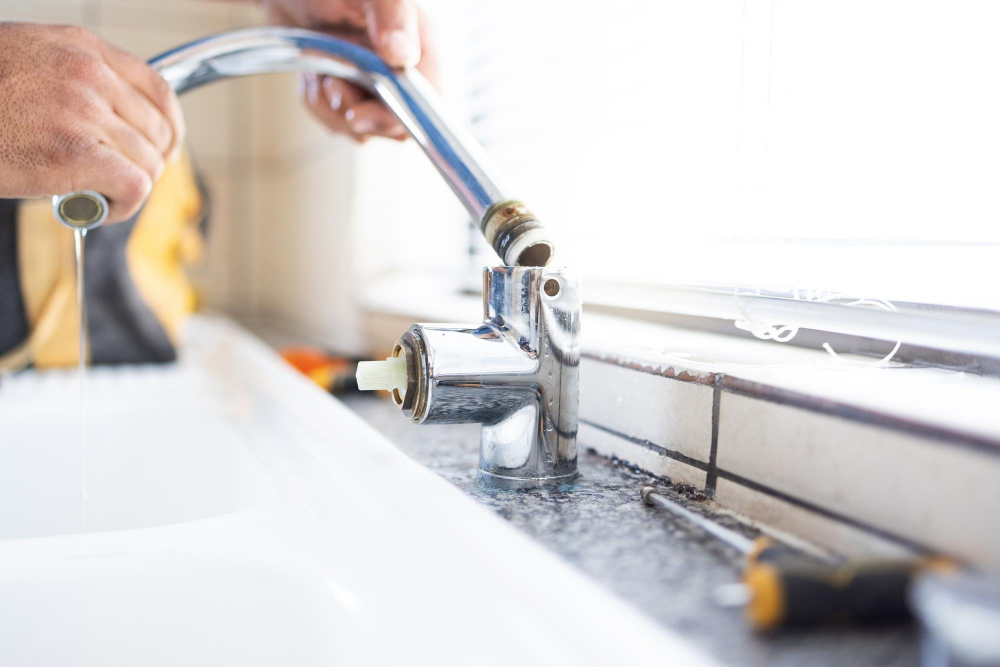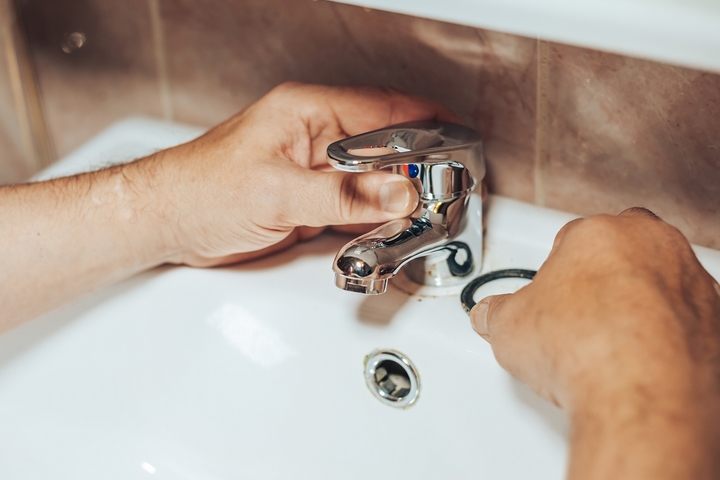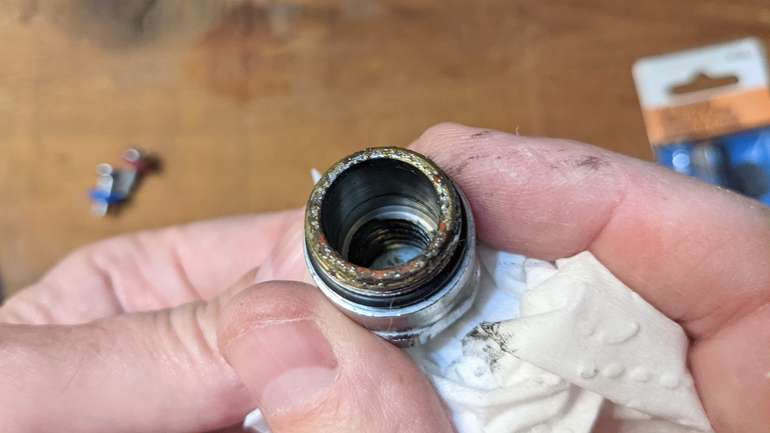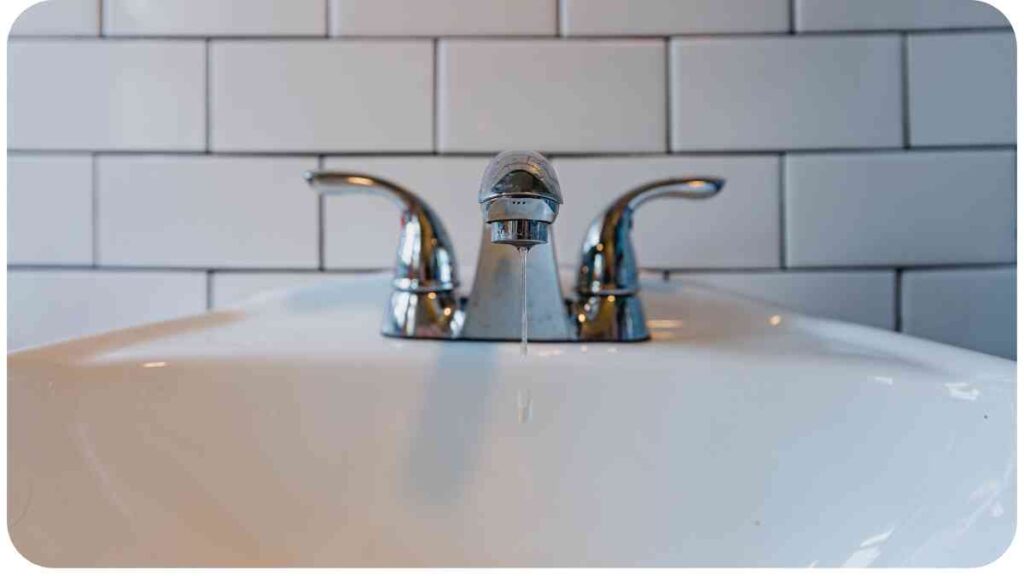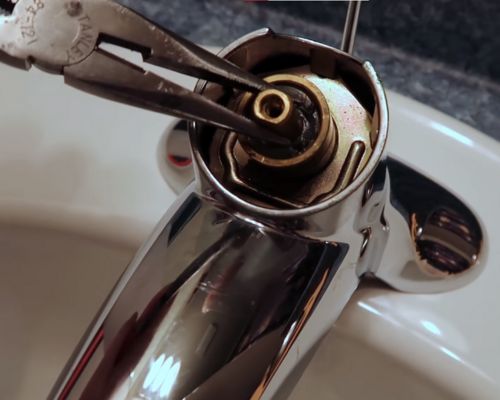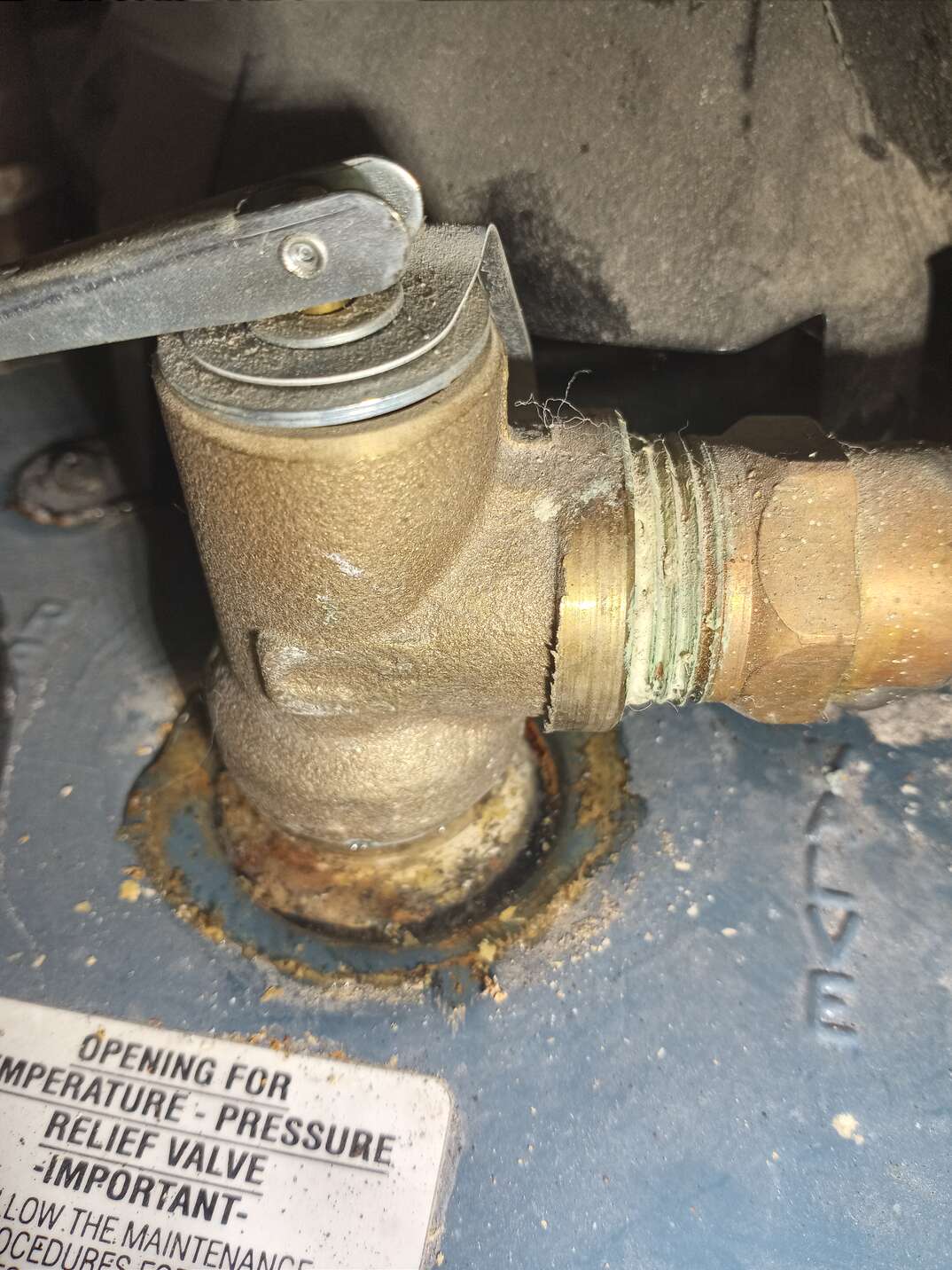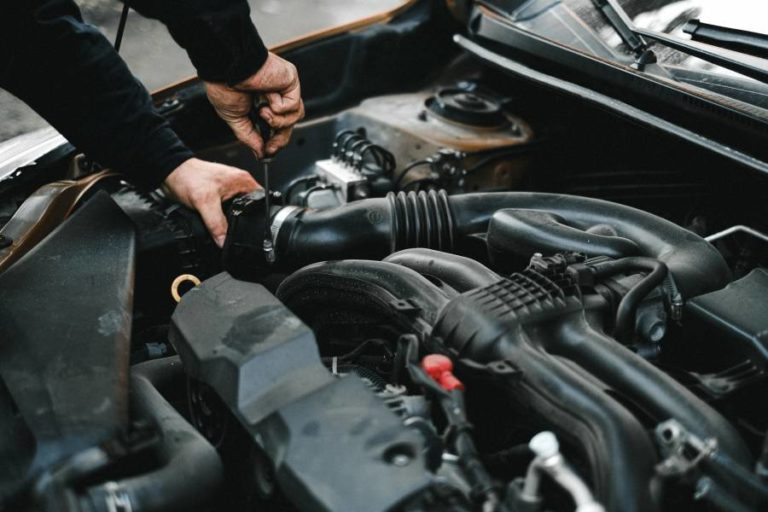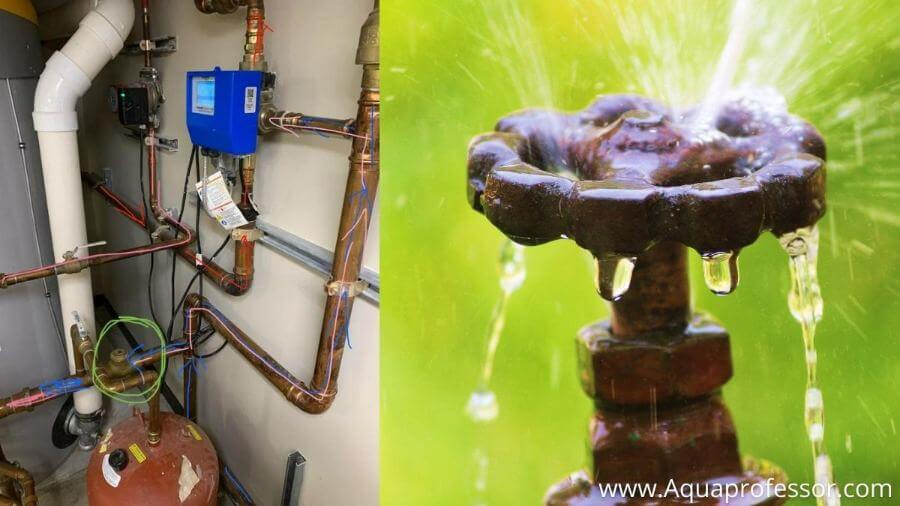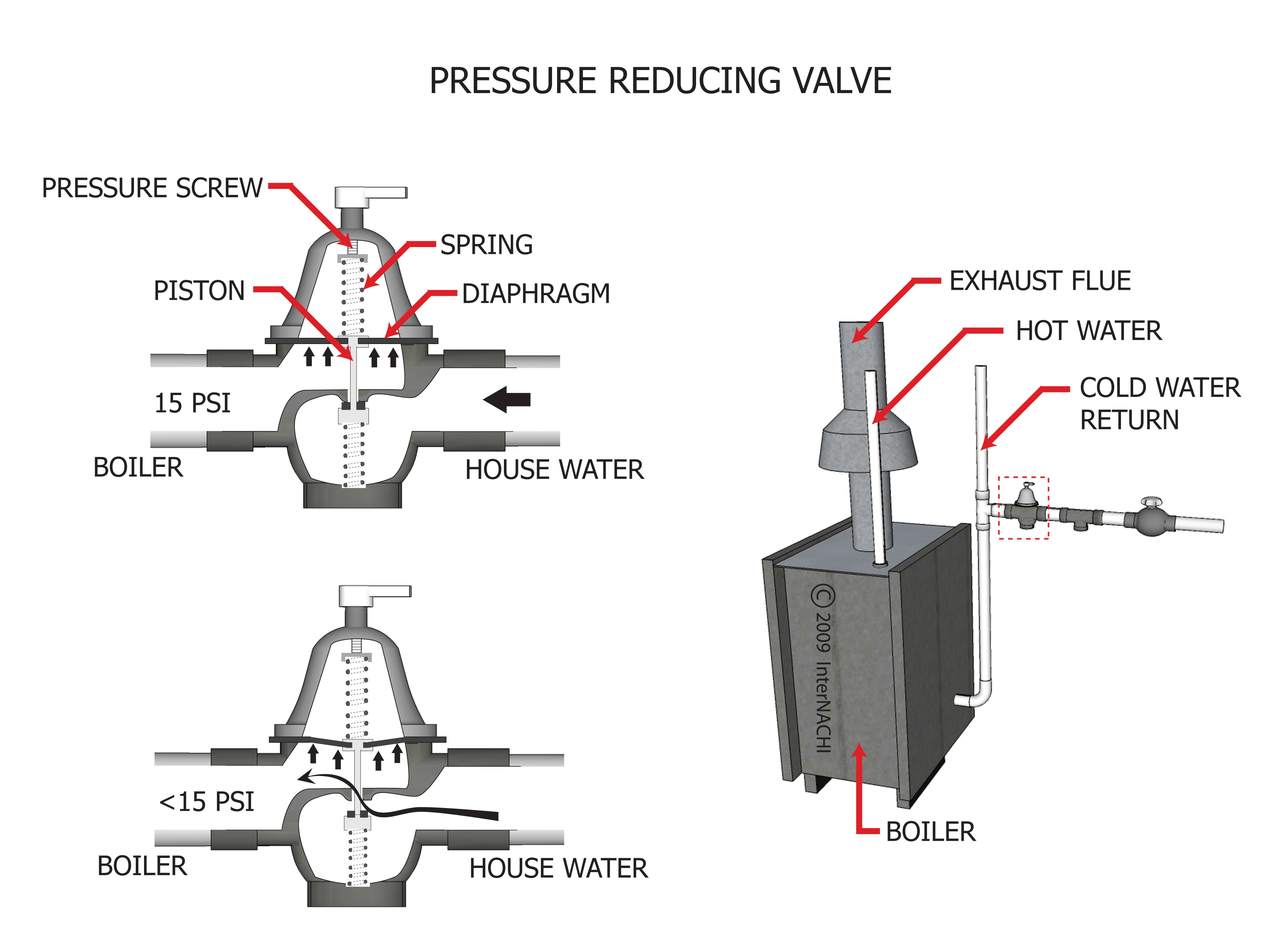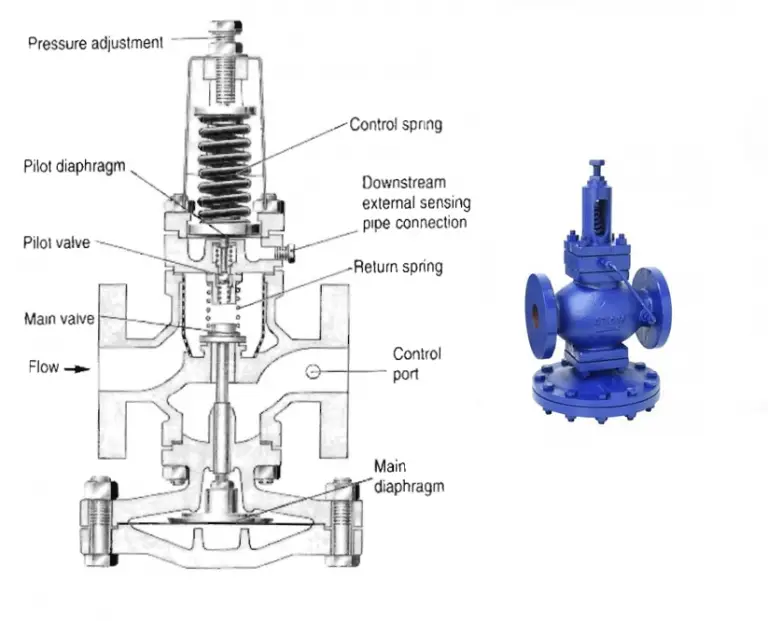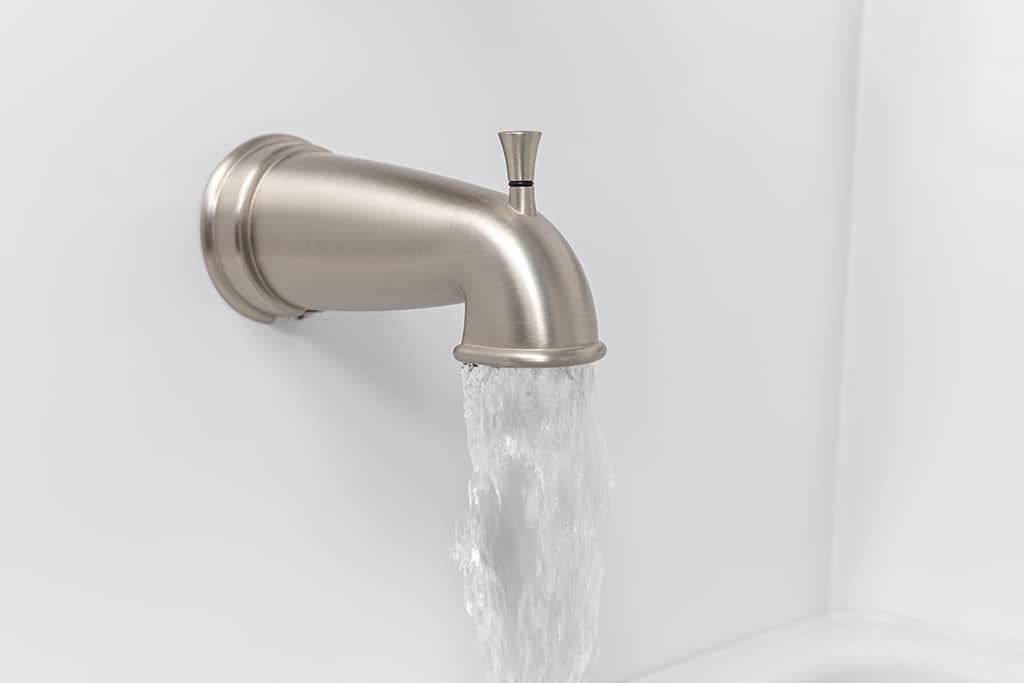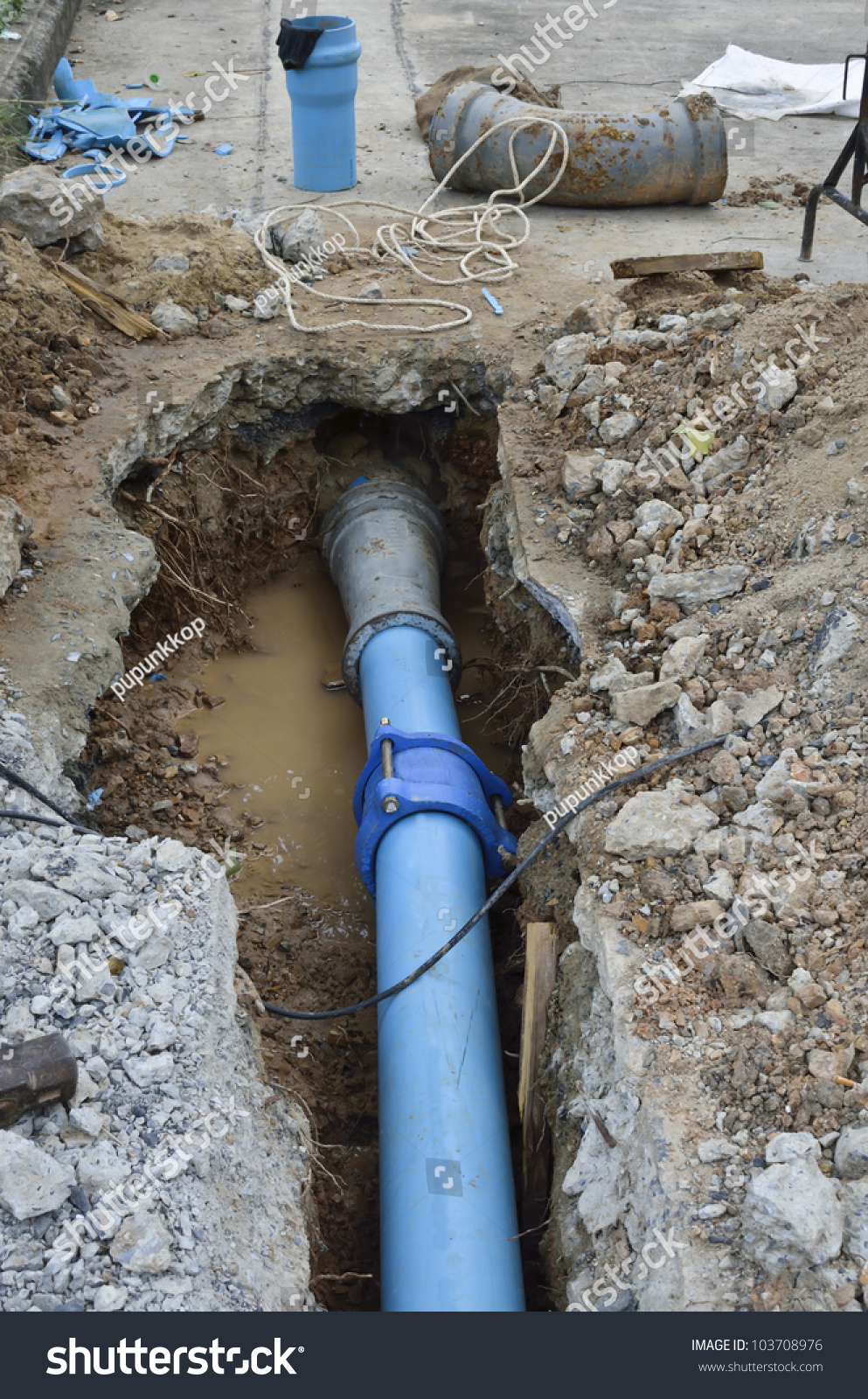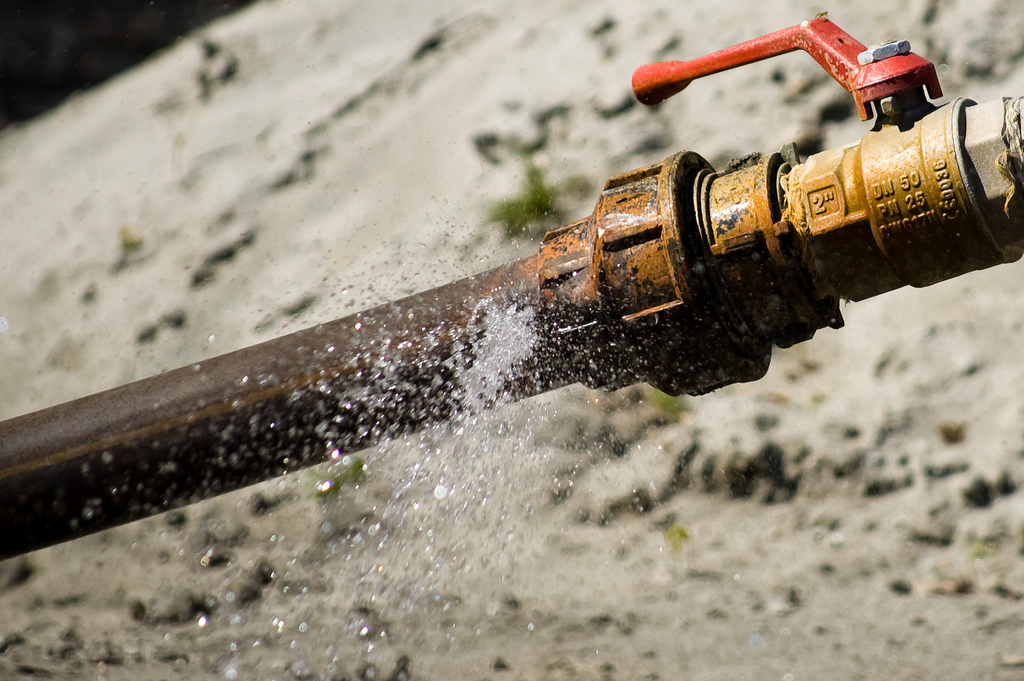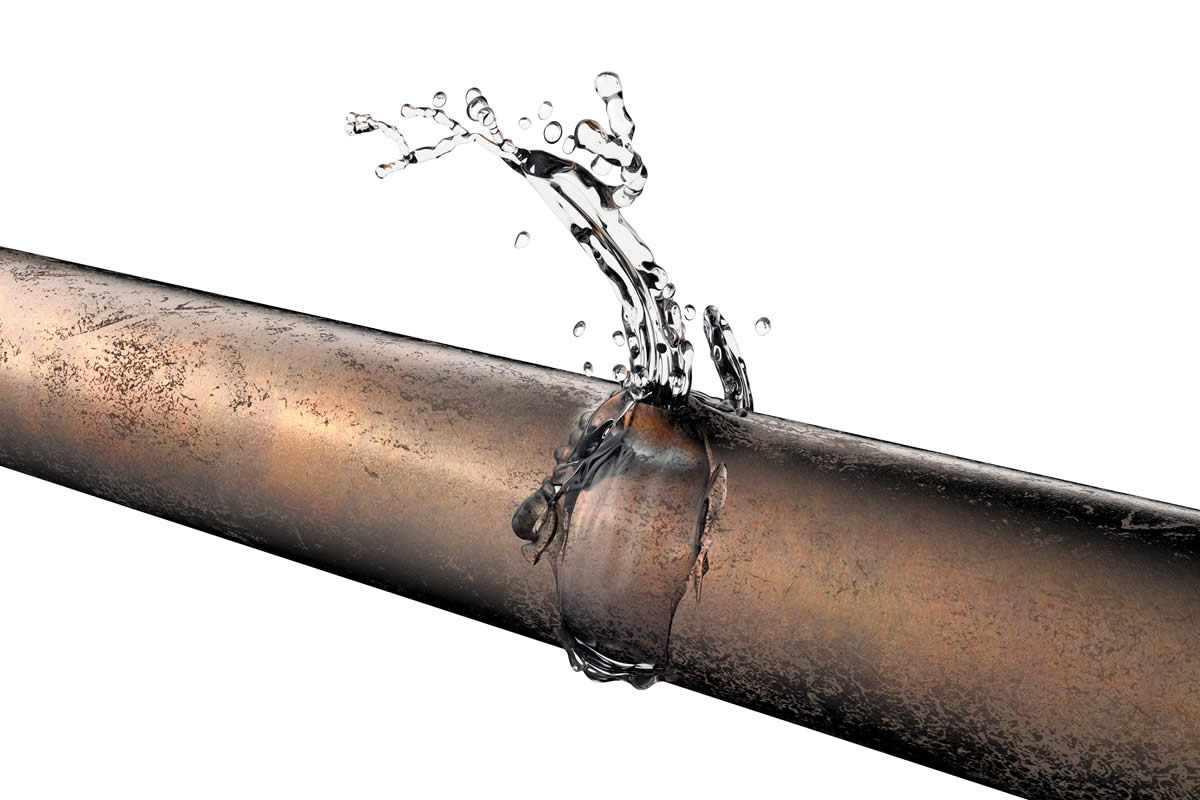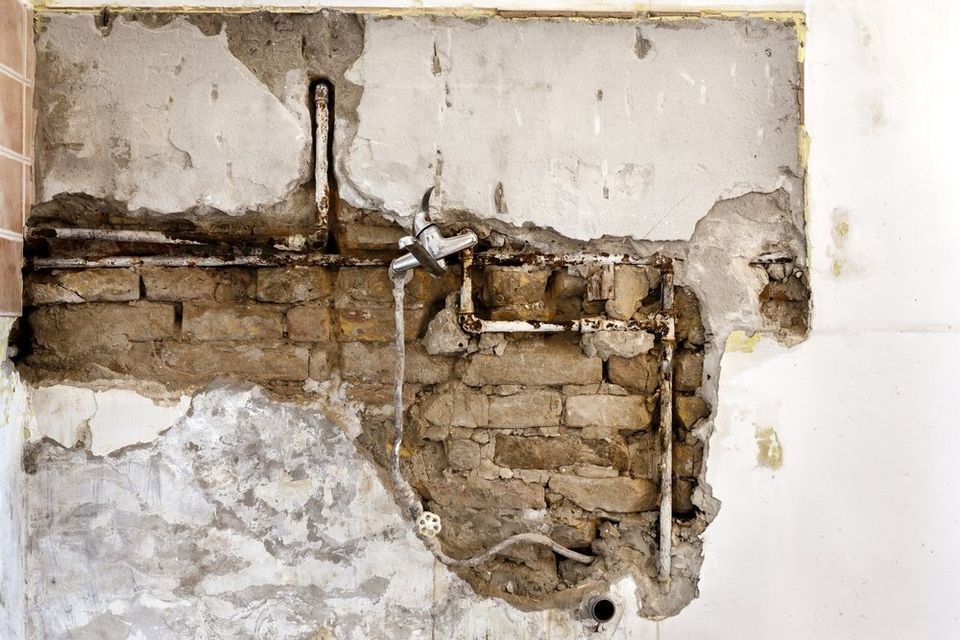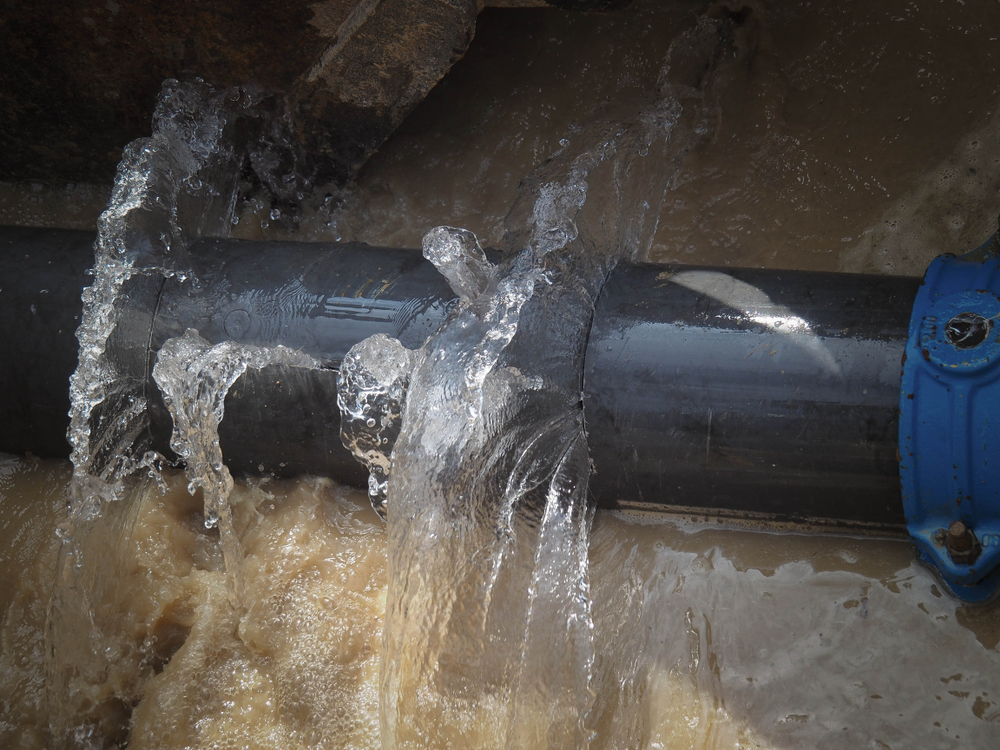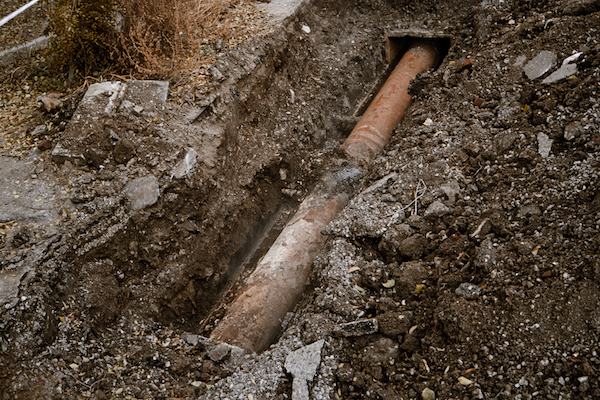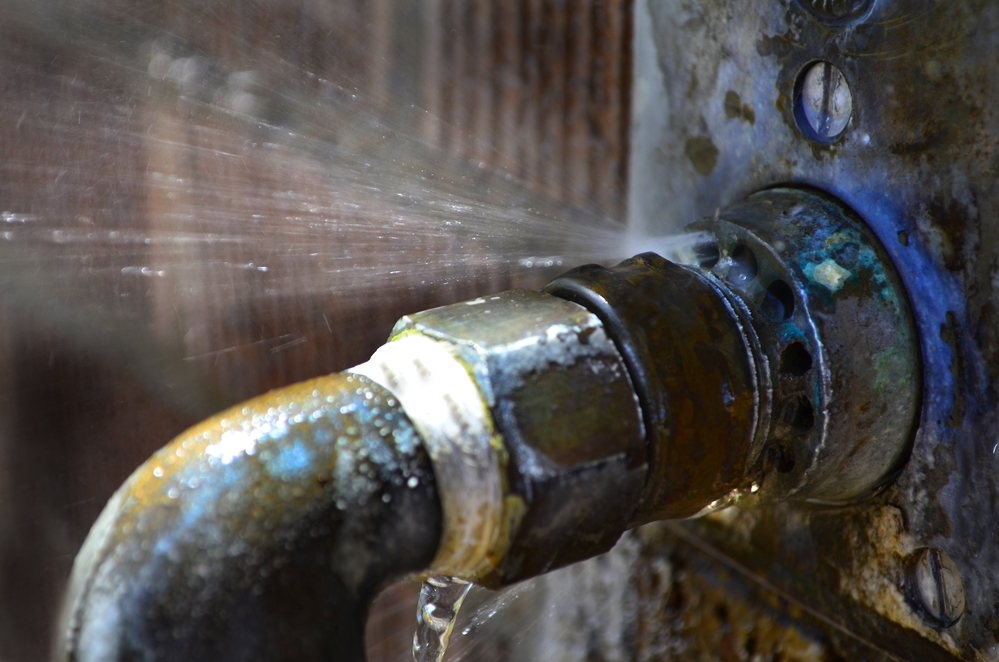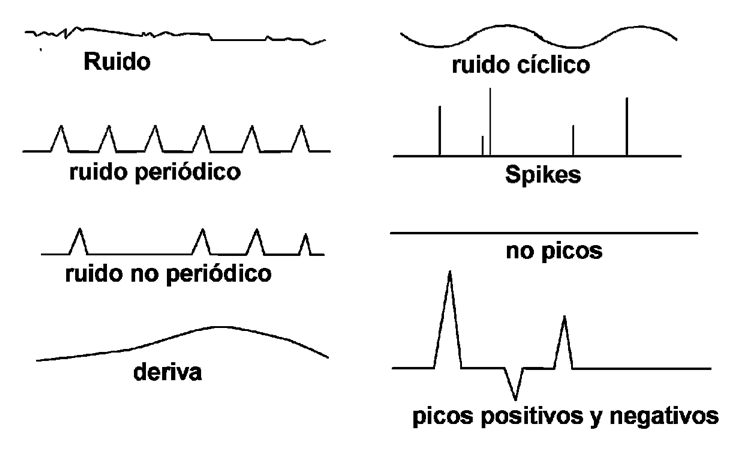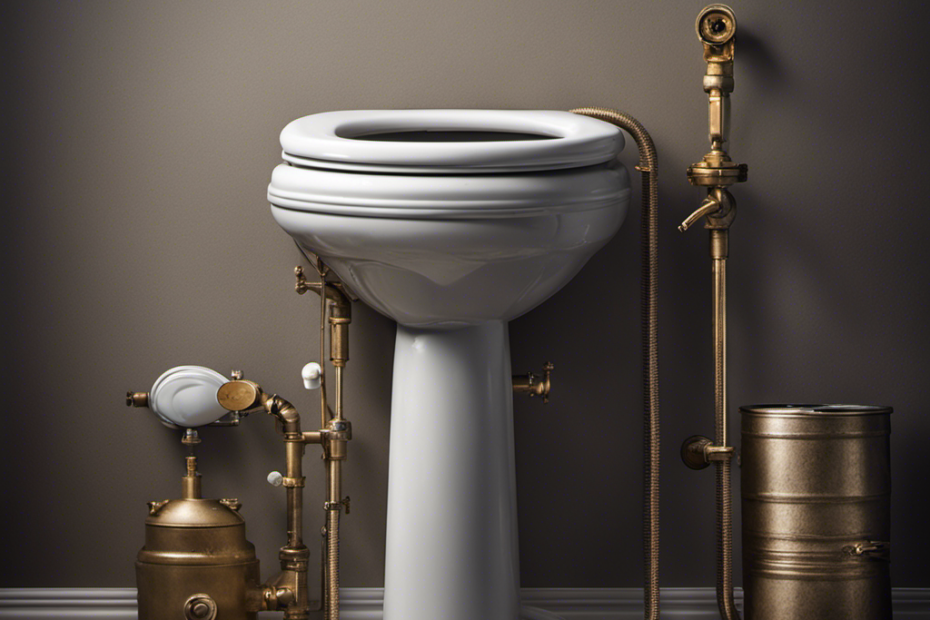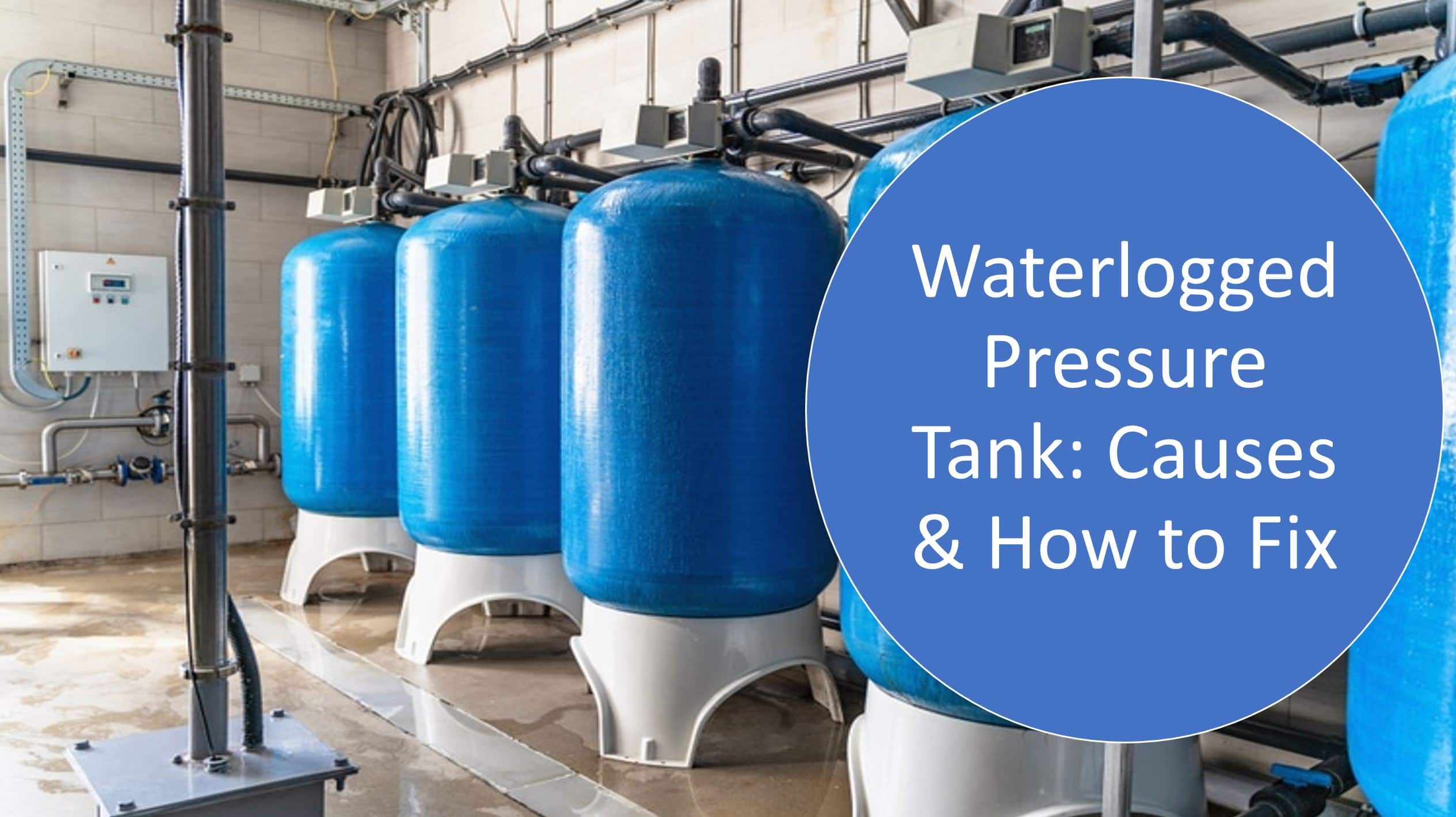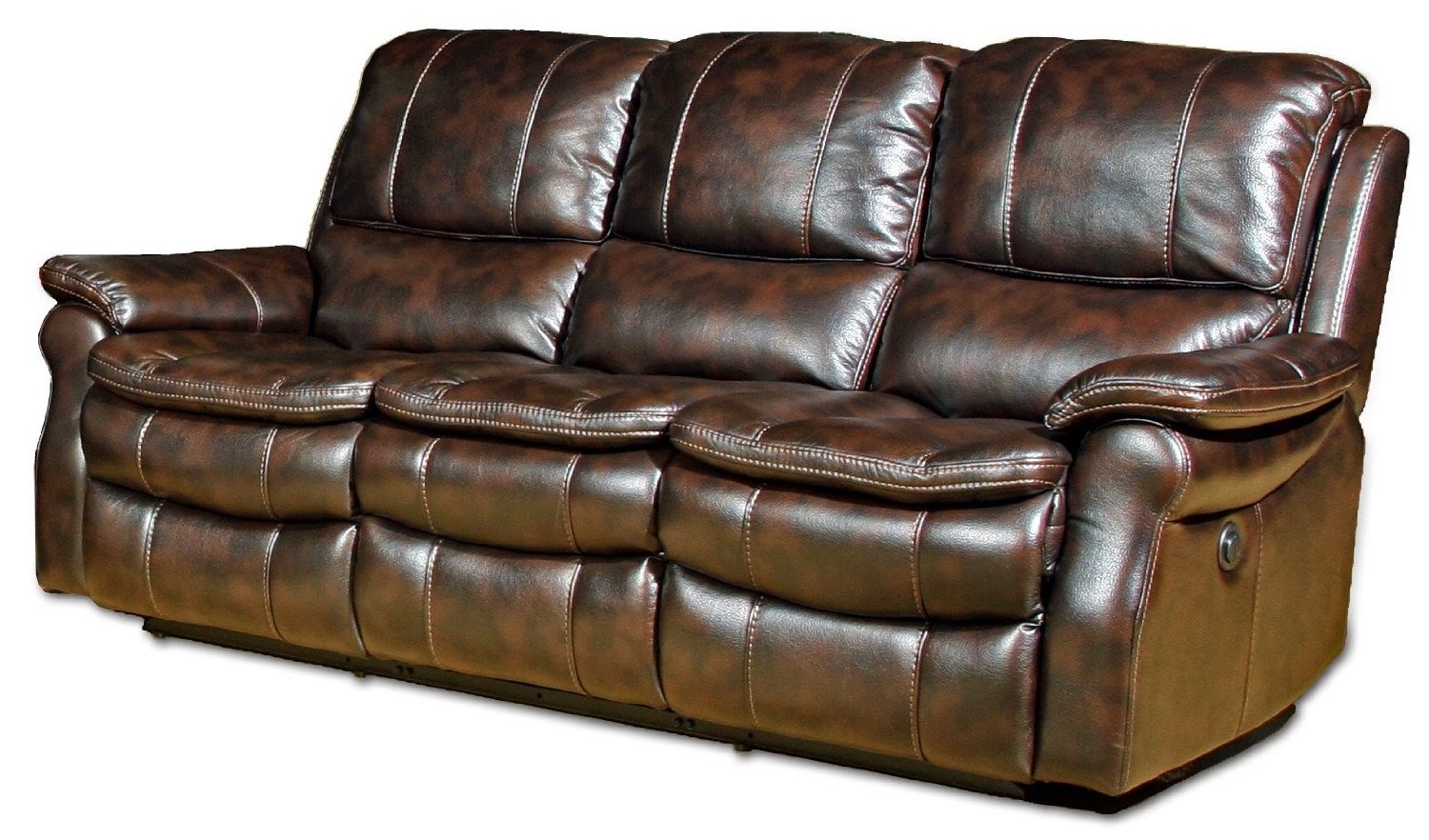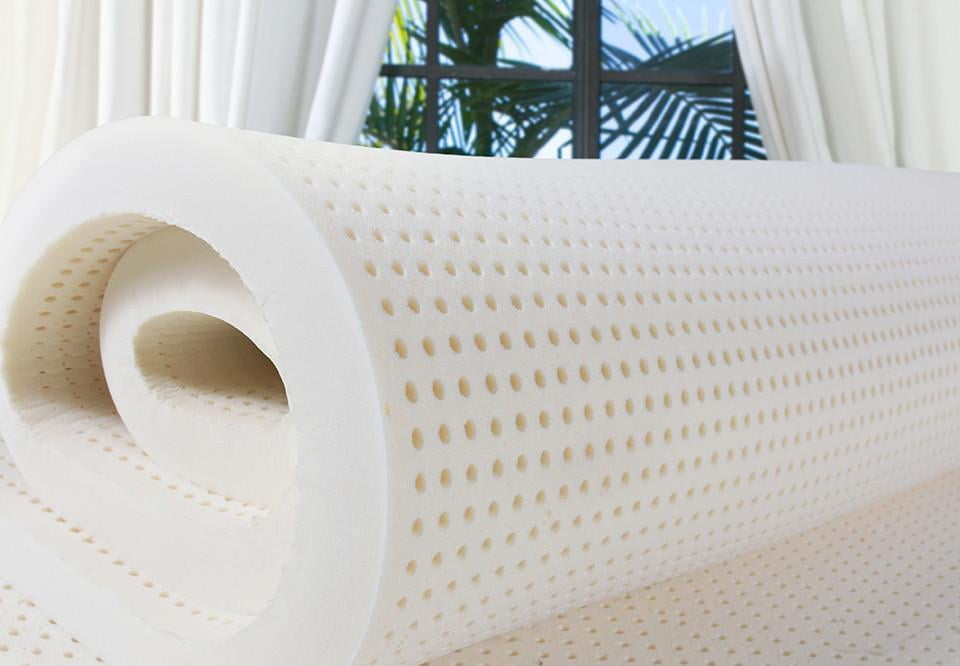One of the first things to do when you experience a sudden loss of water pressure in your kitchen sink is to check the water supply valve. This valve controls the flow of water into your sink and if it's not fully open, it can result in low water pressure. Make sure to turn the valve all the way to the left to ensure it's fully open and see if that improves the water pressure.Check the water supply valve
The aerator is a small screen at the end of your faucet that helps regulate the water flow and prevent splashing. Over time, this screen can become clogged with mineral deposits and debris, causing a decrease in water pressure. You can easily remove and clean the aerator using a toothbrush and vinegar to dissolve any buildup. This should help improve the water pressure in your kitchen sink.Inspect the aerator
If the water pressure issue is not resolved by checking the water supply valve and cleaning the aerator, the next step is to inspect the pipes for any clogs. Clogs can occur due to a buildup of debris, hair, or even tree roots in the pipes. You can try using a plunger or a plumbing snake to clear the clog, but if the issue persists, it's best to call a professional plumber to properly diagnose and fix the problem.Check for clogged pipes
The water pressure regulator is a valve that controls the overall water pressure in your home. If this valve is not functioning properly, it can result in low water pressure. If you have a pressure regulator, it's important to check if it's set to the correct pressure for your home. If it's not, you may need to adjust it or replace it altogether.Examine the water pressure regulator
Leaky pipes can also be the cause of low water pressure in your kitchen sink. Even a small leak can result in a significant loss of water pressure. To check for leaks, turn off all water sources in your home and look for any signs of water damage or dripping pipes. If you do find a leak, it's important to call a plumber to repair it as soon as possible.Look for leaks in the pipes
If your kitchen sink is supplied with hot water, the issue may be with your water heater. Sediment buildup or a faulty heating element can cause a decrease in hot water pressure. To fix this, you can try flushing out the sediment from the water heater or replacing the heating element. If the issue persists, it's best to call a professional to diagnose and repair the water heater.Check the water heater
The faucet cartridge is a small device inside your faucet that controls the flow of water. If this cartridge is damaged or worn out, it can result in low water pressure. You can try cleaning or replacing the cartridge to see if that improves the water pressure in your kitchen sink.Inspect the faucet cartridge
Similar to the water pressure regulator, a faulty pressure reducing valve can also cause low water pressure in your home. This valve is responsible for reducing the water pressure from the main water supply to a safe level for your home. If it's not functioning properly, it can result in a decrease in water pressure. You may need to replace the valve or call a professional to do it for you.Check for a faulty pressure reducing valve
If all else fails, the issue may be with a broken or damaged pipe. Pipes can become cracked or broken due to age, extreme temperature changes, or even tree root intrusion. This can result in a significant decrease in water pressure. If you suspect a broken or damaged pipe, it's important to call a plumber to properly assess and repair the issue.Look for a broken or damaged pipe
If your home is supplied with well water, a malfunctioning pressure tank could be the cause of low water pressure in your kitchen sink. The pressure tank is responsible for storing and maintaining the water pressure in your home. If it's not functioning properly, it can result in low water pressure. You may need to replace the pressure tank or call a professional to do it for you. In conclusion, a sudden loss of water pressure in your kitchen sink can be frustrating and inconvenient. However, by checking these 10 possible causes and taking the necessary steps to fix them, you can get your water pressure back to normal and continue using your kitchen sink without any issues.Check for a malfunctioning pressure tank
The Importance of Water Pressure in Your Kitchen Sink
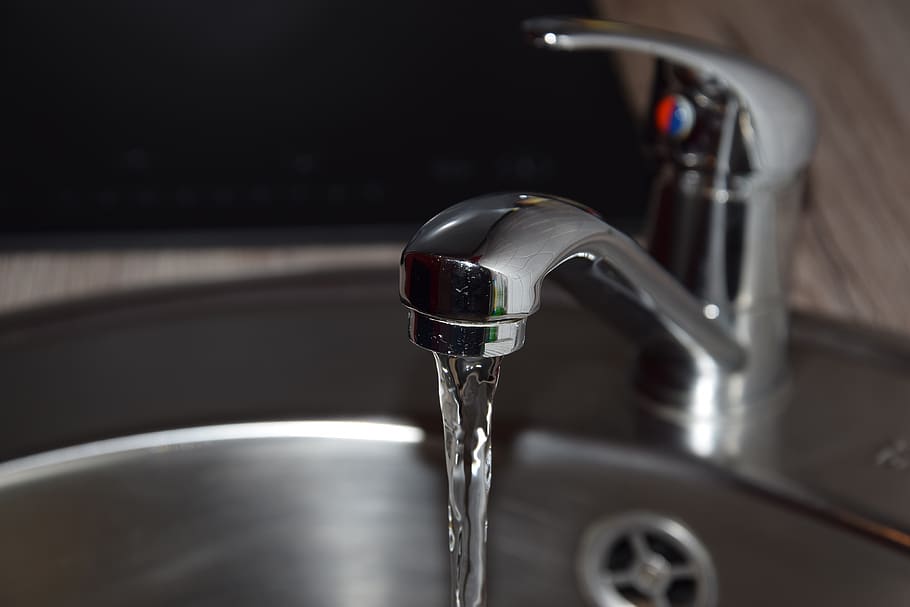
Understanding the Impact of Sudden Loss of Water Pressure
 Water pressure is often taken for granted when it comes to household chores. From washing dishes to filling up a pot to cook dinner, we rely on a steady flow of water to get the job done efficiently. However, when there is a sudden loss of water pressure in your kitchen sink, it can quickly become a frustrating and inconvenient issue to deal with. Not only does it disrupt your daily routine, but it can also indicate a larger problem with your house's plumbing system. Understanding the impact of sudden loss of water pressure in your kitchen sink is crucial in maintaining a functional and comfortable living space.
Sudden Loss of Water Pressure: What Causes It?
The sudden loss of water pressure in your kitchen sink can be caused by various factors. One of the most common causes is a clogged aerator. The aerator is the small screen located at the end of your faucet, responsible for regulating the amount of water that comes out. Over time, mineral deposits and debris can build up in the aerator, restricting the flow of water and causing a decrease in pressure. Another possible cause could be a damaged or old water pump. The pump is responsible for pushing water through the plumbing system, and if it is not functioning correctly, it can result in a sudden loss of water pressure.
The Impact of Sudden Loss of Water Pressure on Your Home
Aside from the inconvenience of not being able to use your kitchen sink properly, a sudden loss of water pressure can also have more significant implications on your home. If the issue is left unresolved, it can lead to further damage to your plumbing system, resulting in costly repairs. It can also indicate a larger issue, such as a leak or burst pipe, which can lead to water damage and mold growth in your home. Additionally, low water pressure can affect the performance of your appliances, such as your dishwasher and washing machine, causing them to work less efficiently and potentially damaging them in the long run.
Preventing and Resolving the Issue
To prevent a sudden loss of water pressure in your kitchen sink, it is essential to maintain and regularly clean your aerator. You can do this by unscrewing the aerator from the faucet and soaking it in a solution of equal parts water and vinegar to dissolve any mineral deposits. If the issue persists, it is best to consult a professional plumber to inspect your plumbing system and identify the root cause of the problem. They can also recommend any necessary repairs or replacements to ensure your home's water pressure stays consistent.
In conclusion, water pressure is a vital aspect of your home's plumbing system, and sudden loss of pressure in your kitchen sink should not be ignored. It can have significant implications on your daily routine and the functionality of your home. By understanding the potential causes and impacts of low water pressure and taking preventative measures, you can ensure a well-maintained and functional living space for you and your family.
Water pressure is often taken for granted when it comes to household chores. From washing dishes to filling up a pot to cook dinner, we rely on a steady flow of water to get the job done efficiently. However, when there is a sudden loss of water pressure in your kitchen sink, it can quickly become a frustrating and inconvenient issue to deal with. Not only does it disrupt your daily routine, but it can also indicate a larger problem with your house's plumbing system. Understanding the impact of sudden loss of water pressure in your kitchen sink is crucial in maintaining a functional and comfortable living space.
Sudden Loss of Water Pressure: What Causes It?
The sudden loss of water pressure in your kitchen sink can be caused by various factors. One of the most common causes is a clogged aerator. The aerator is the small screen located at the end of your faucet, responsible for regulating the amount of water that comes out. Over time, mineral deposits and debris can build up in the aerator, restricting the flow of water and causing a decrease in pressure. Another possible cause could be a damaged or old water pump. The pump is responsible for pushing water through the plumbing system, and if it is not functioning correctly, it can result in a sudden loss of water pressure.
The Impact of Sudden Loss of Water Pressure on Your Home
Aside from the inconvenience of not being able to use your kitchen sink properly, a sudden loss of water pressure can also have more significant implications on your home. If the issue is left unresolved, it can lead to further damage to your plumbing system, resulting in costly repairs. It can also indicate a larger issue, such as a leak or burst pipe, which can lead to water damage and mold growth in your home. Additionally, low water pressure can affect the performance of your appliances, such as your dishwasher and washing machine, causing them to work less efficiently and potentially damaging them in the long run.
Preventing and Resolving the Issue
To prevent a sudden loss of water pressure in your kitchen sink, it is essential to maintain and regularly clean your aerator. You can do this by unscrewing the aerator from the faucet and soaking it in a solution of equal parts water and vinegar to dissolve any mineral deposits. If the issue persists, it is best to consult a professional plumber to inspect your plumbing system and identify the root cause of the problem. They can also recommend any necessary repairs or replacements to ensure your home's water pressure stays consistent.
In conclusion, water pressure is a vital aspect of your home's plumbing system, and sudden loss of pressure in your kitchen sink should not be ignored. It can have significant implications on your daily routine and the functionality of your home. By understanding the potential causes and impacts of low water pressure and taking preventative measures, you can ensure a well-maintained and functional living space for you and your family.
